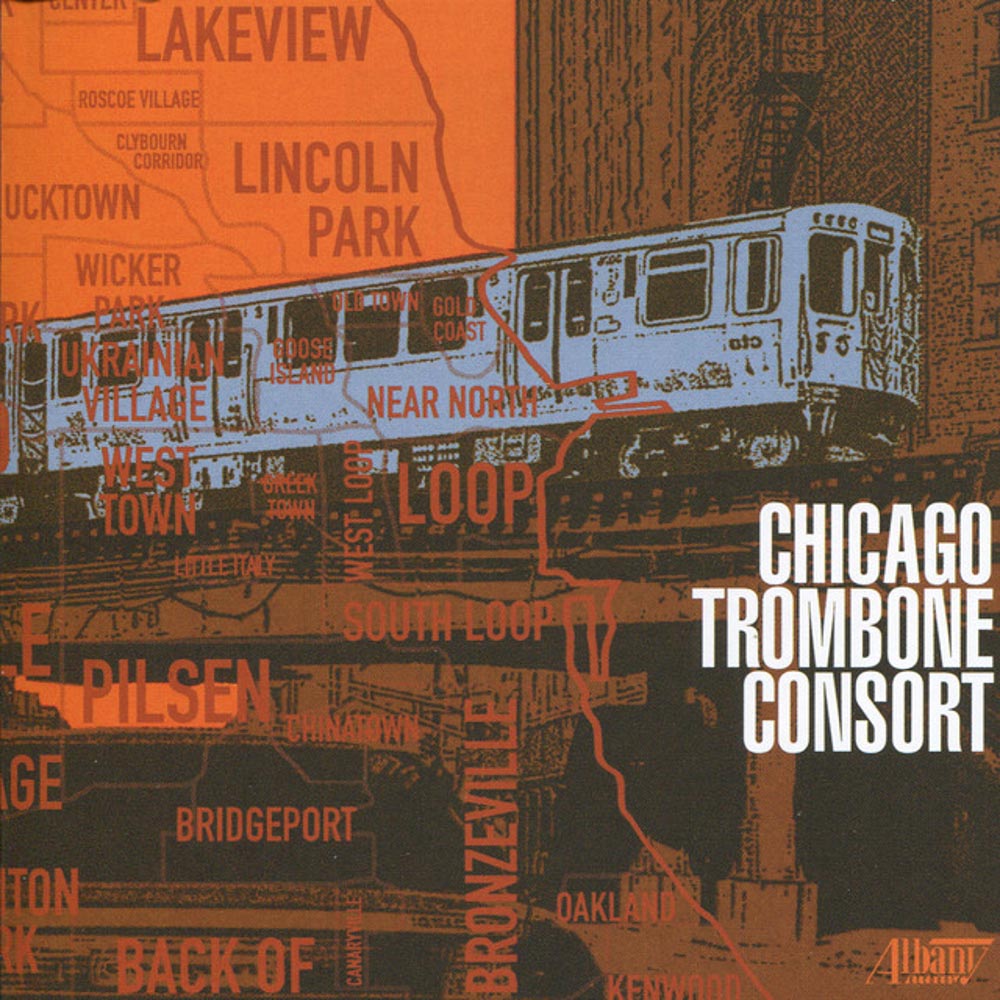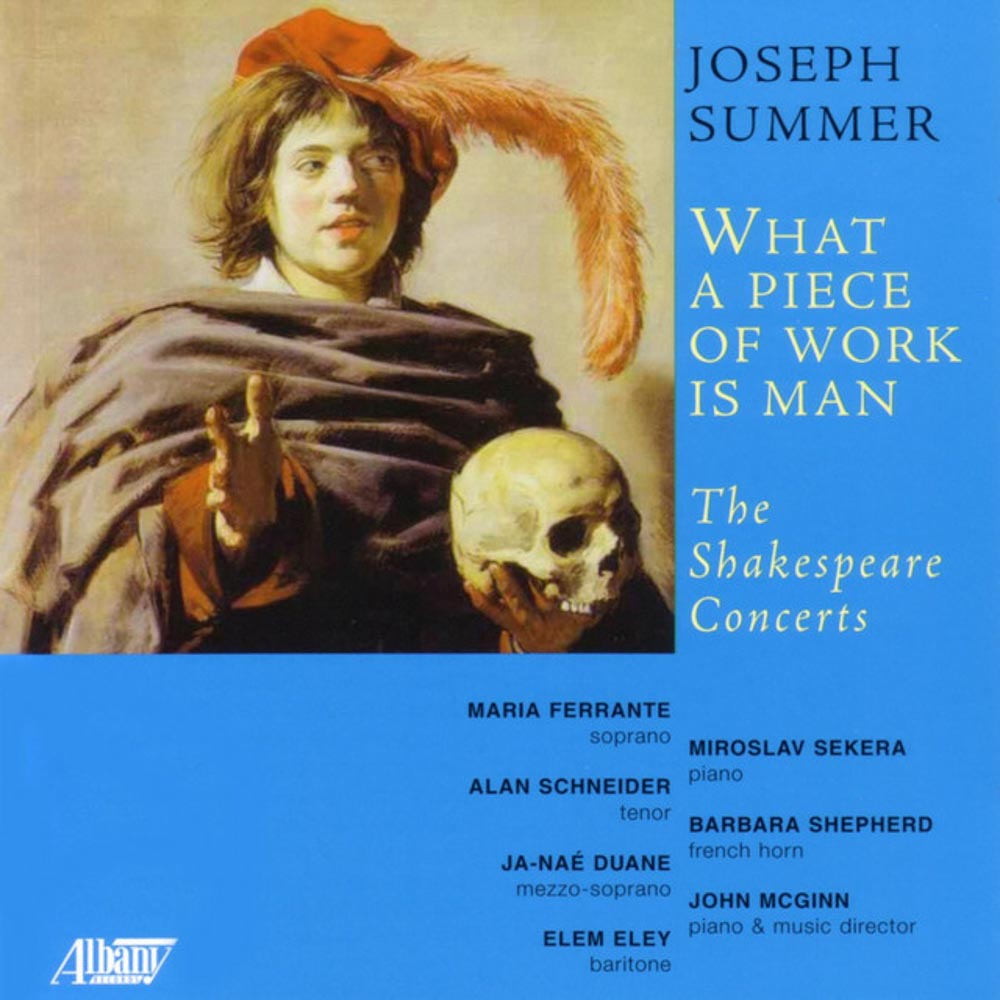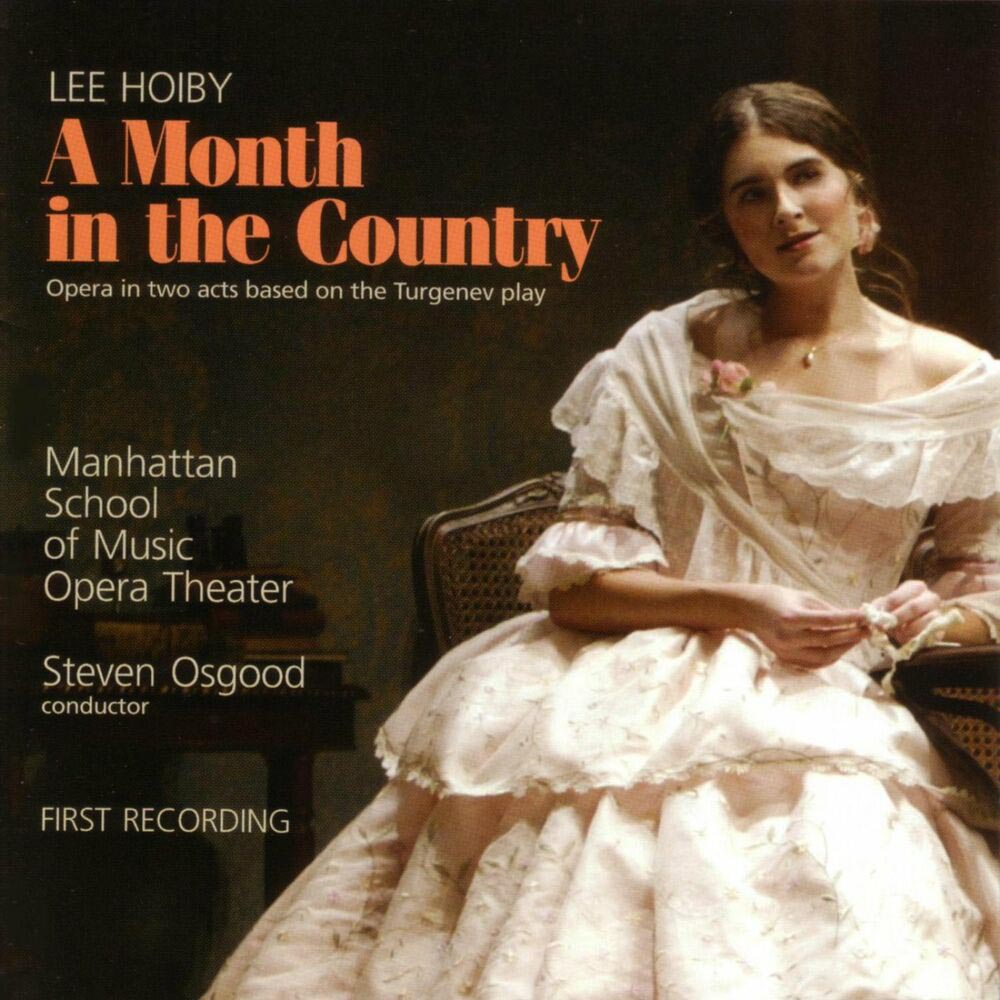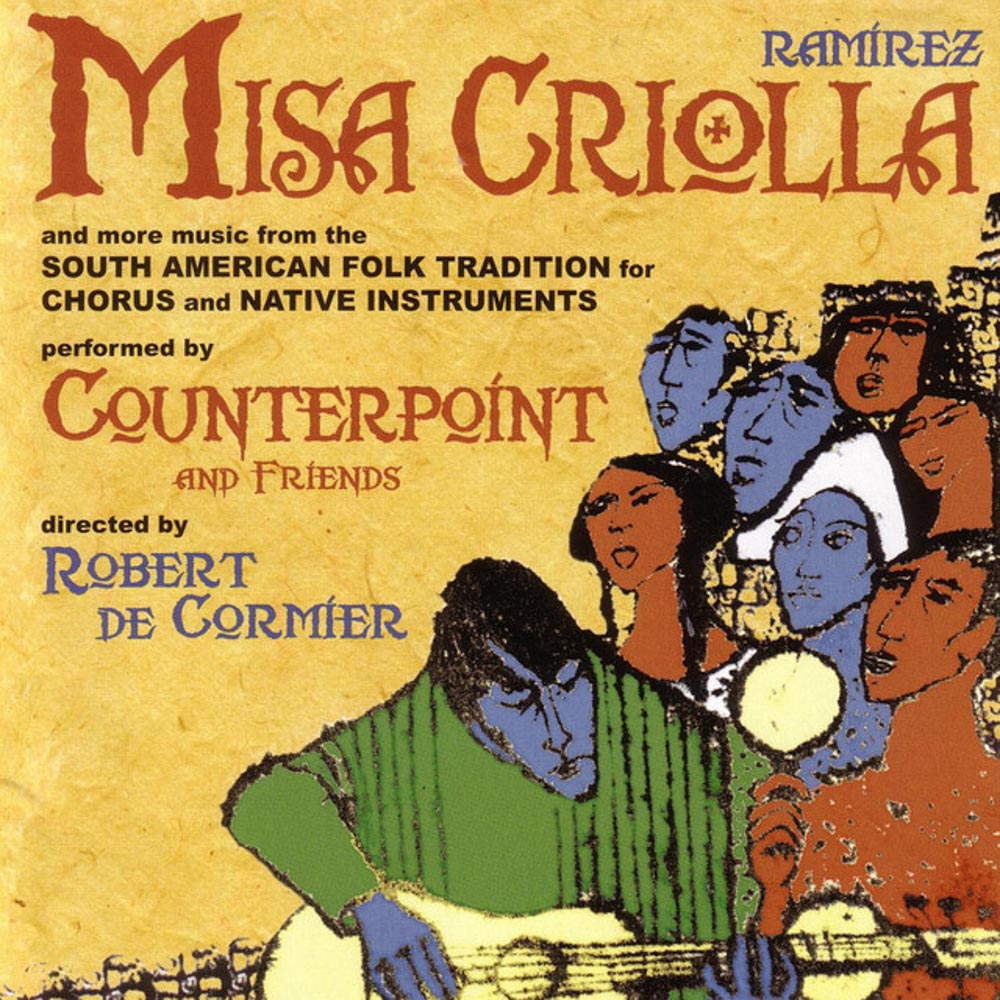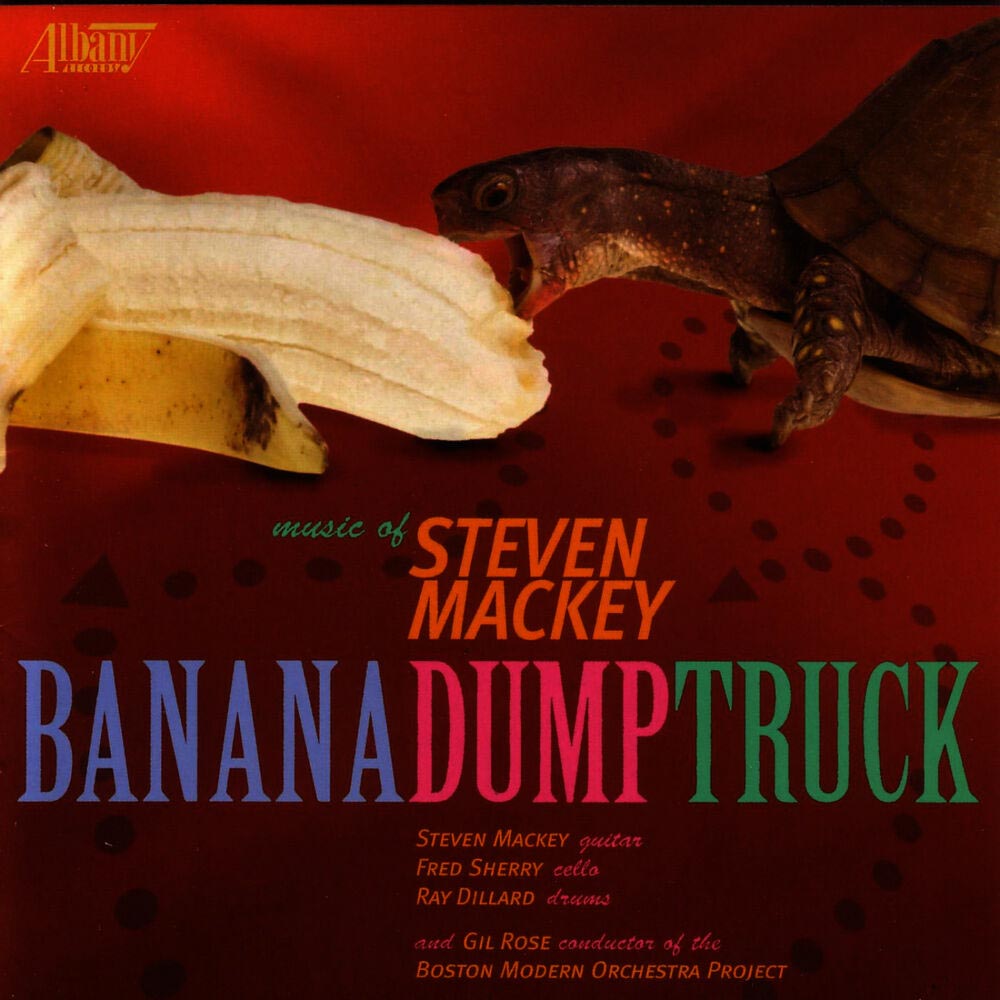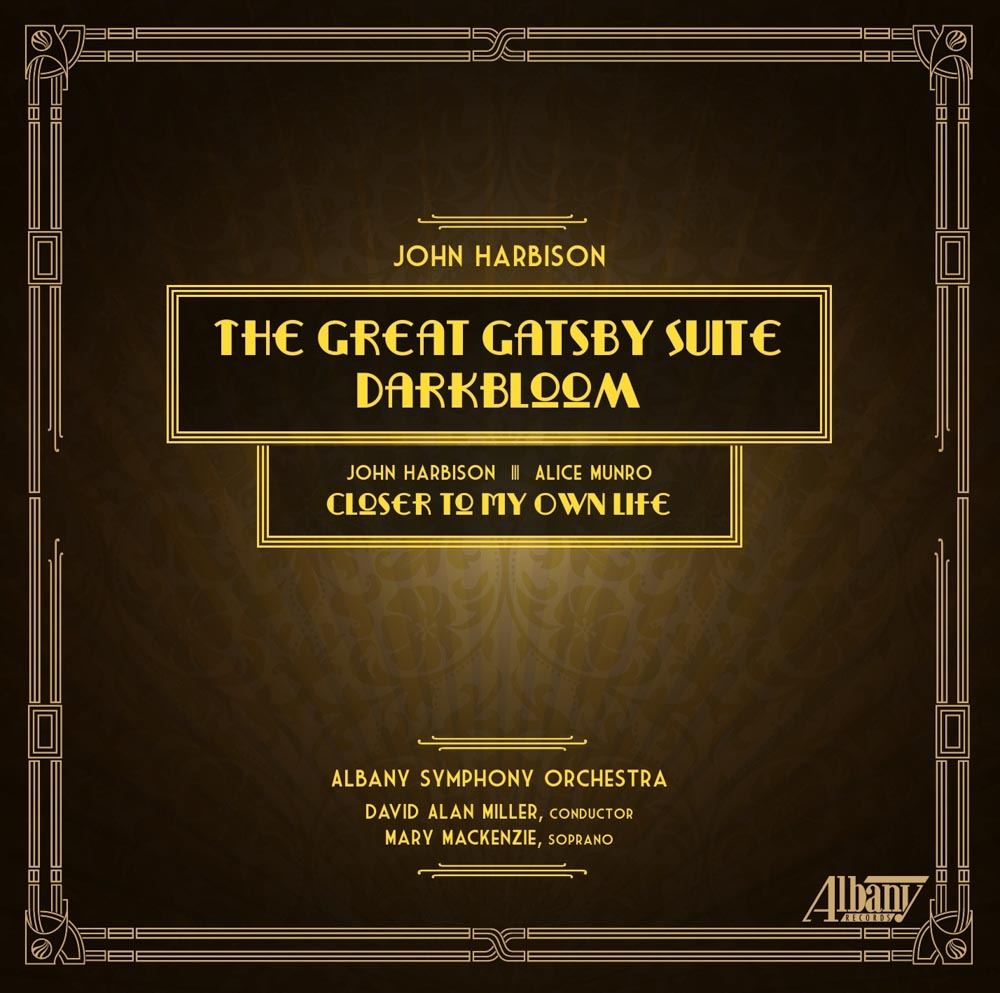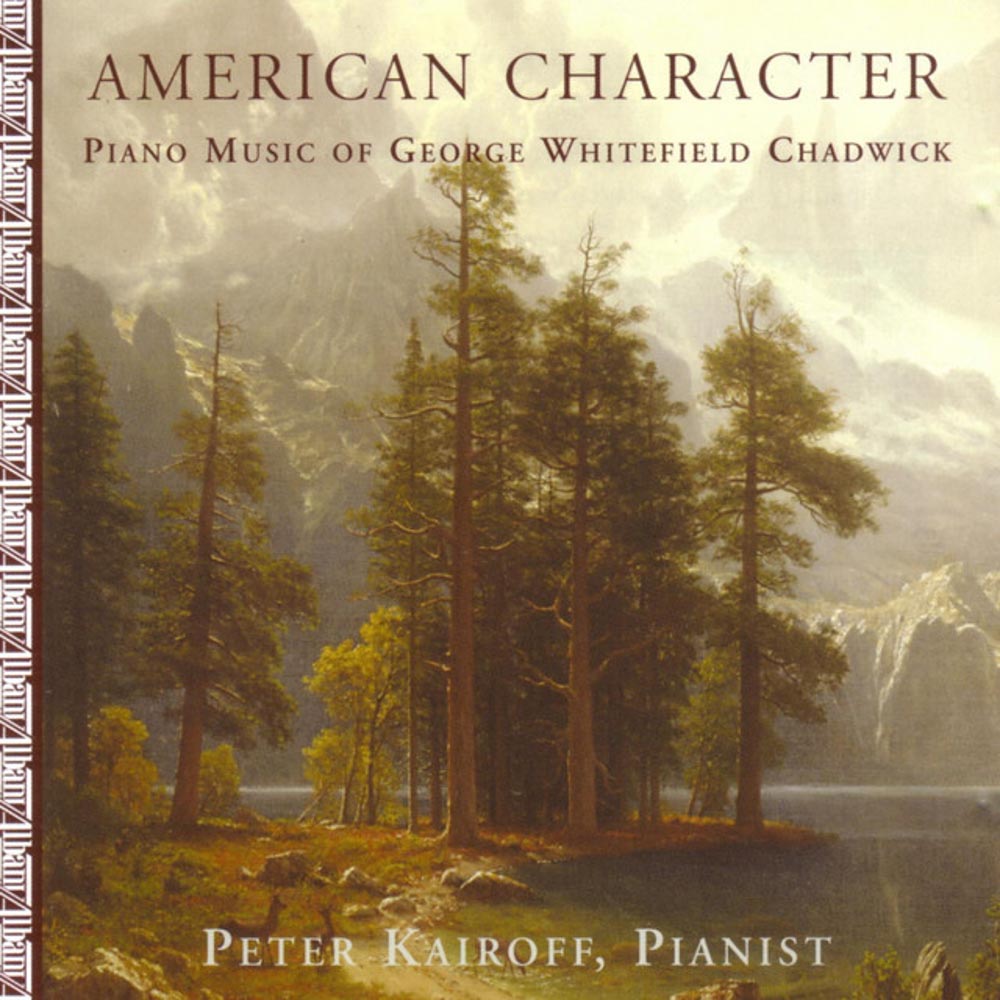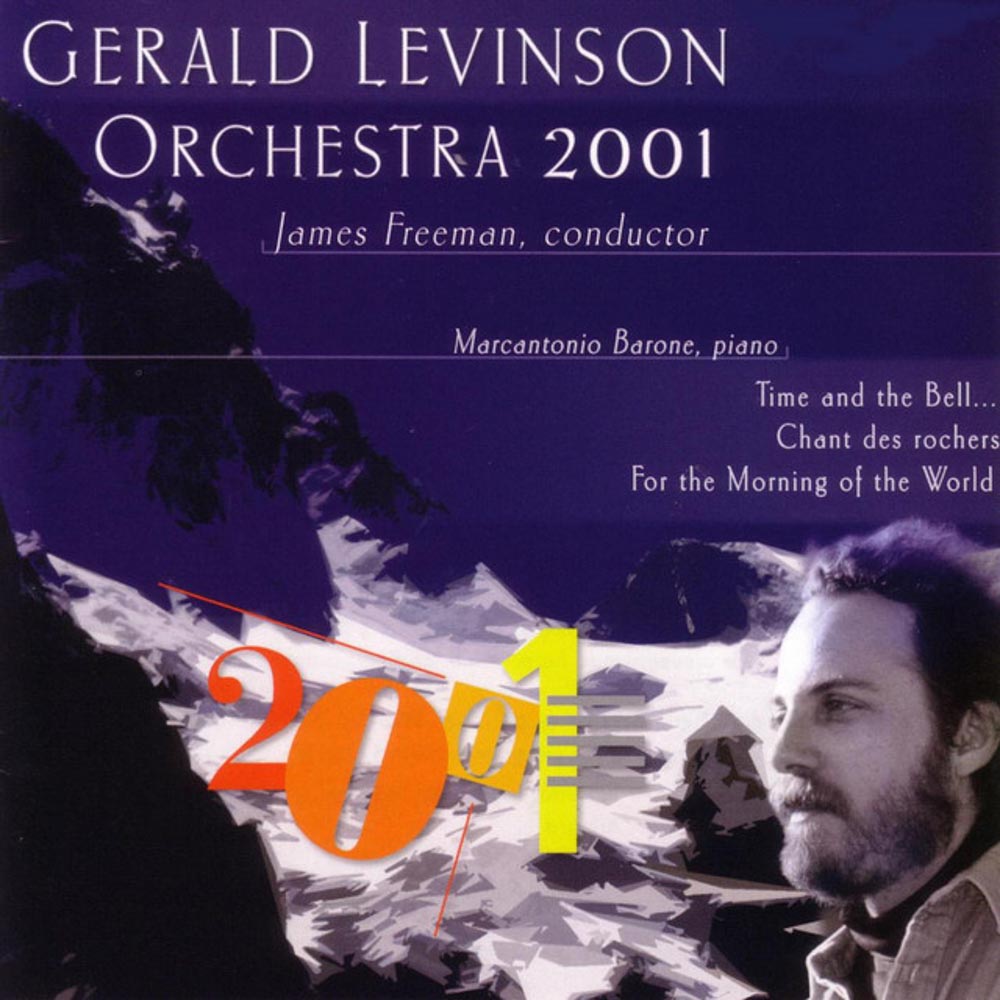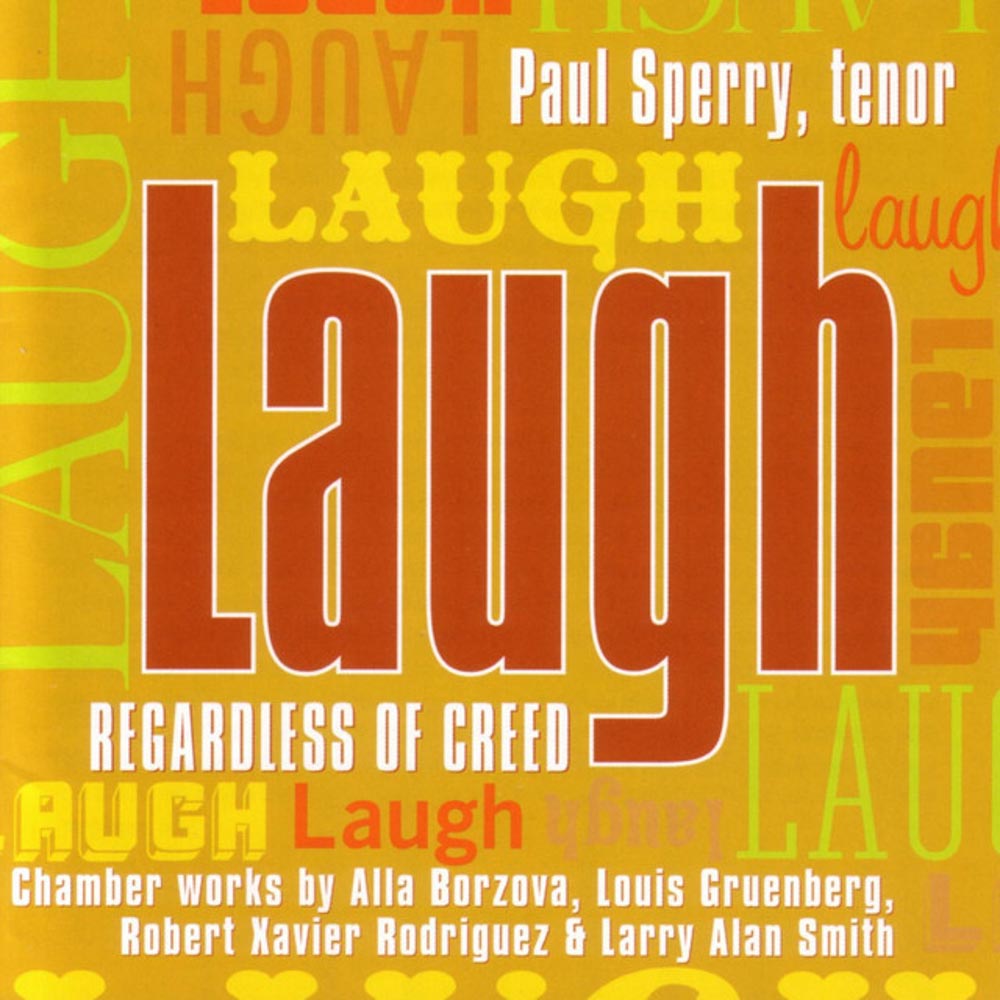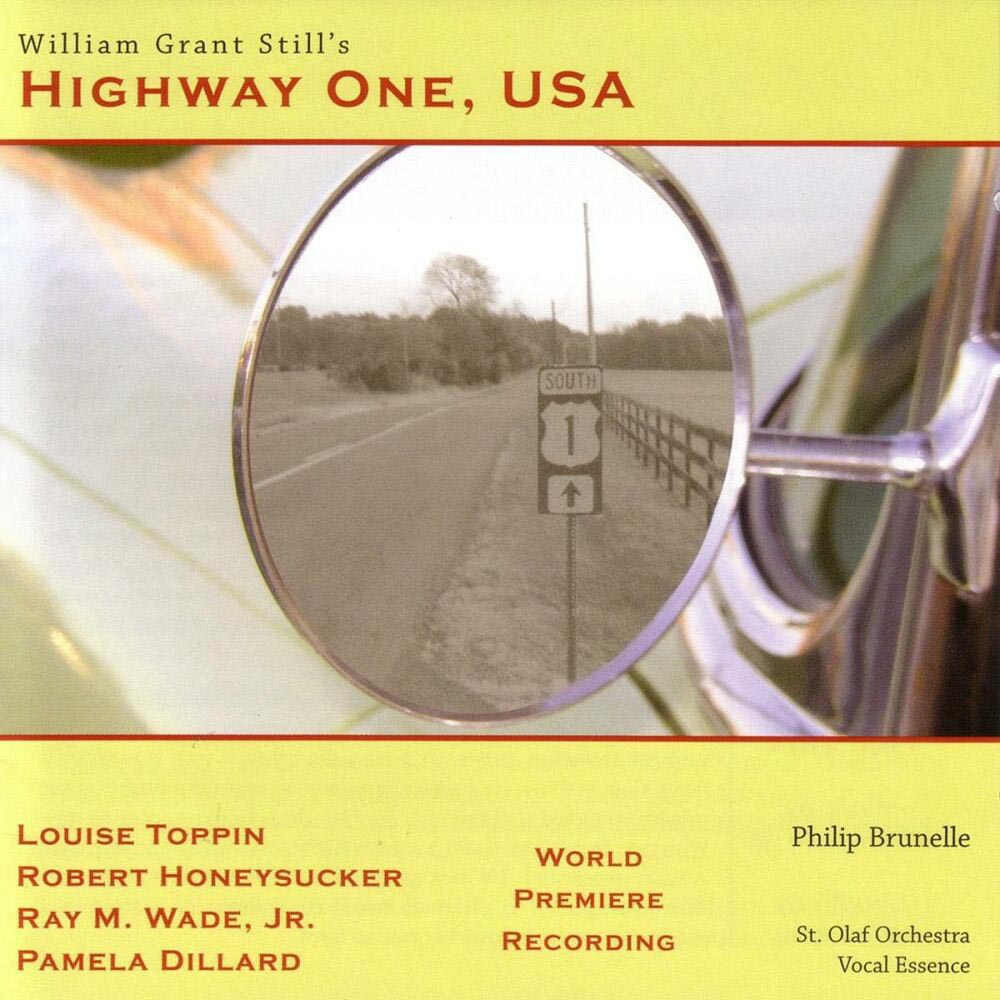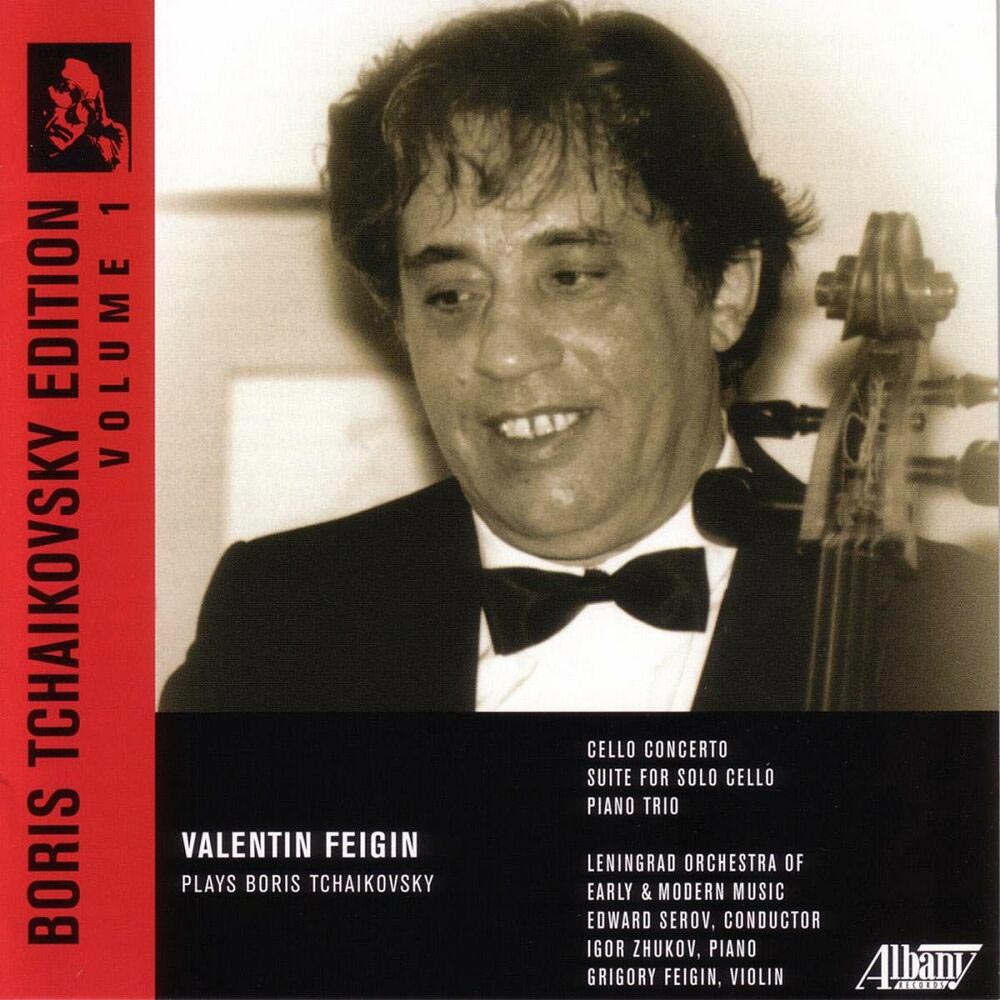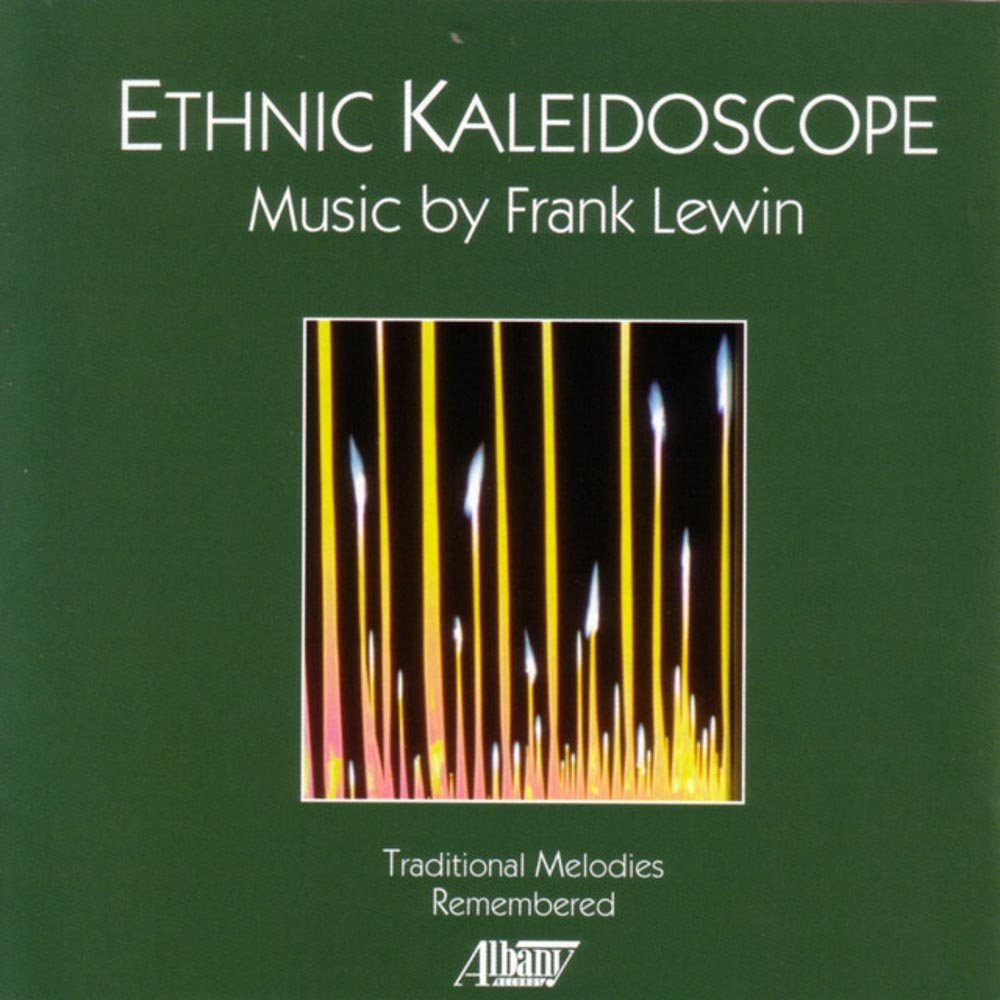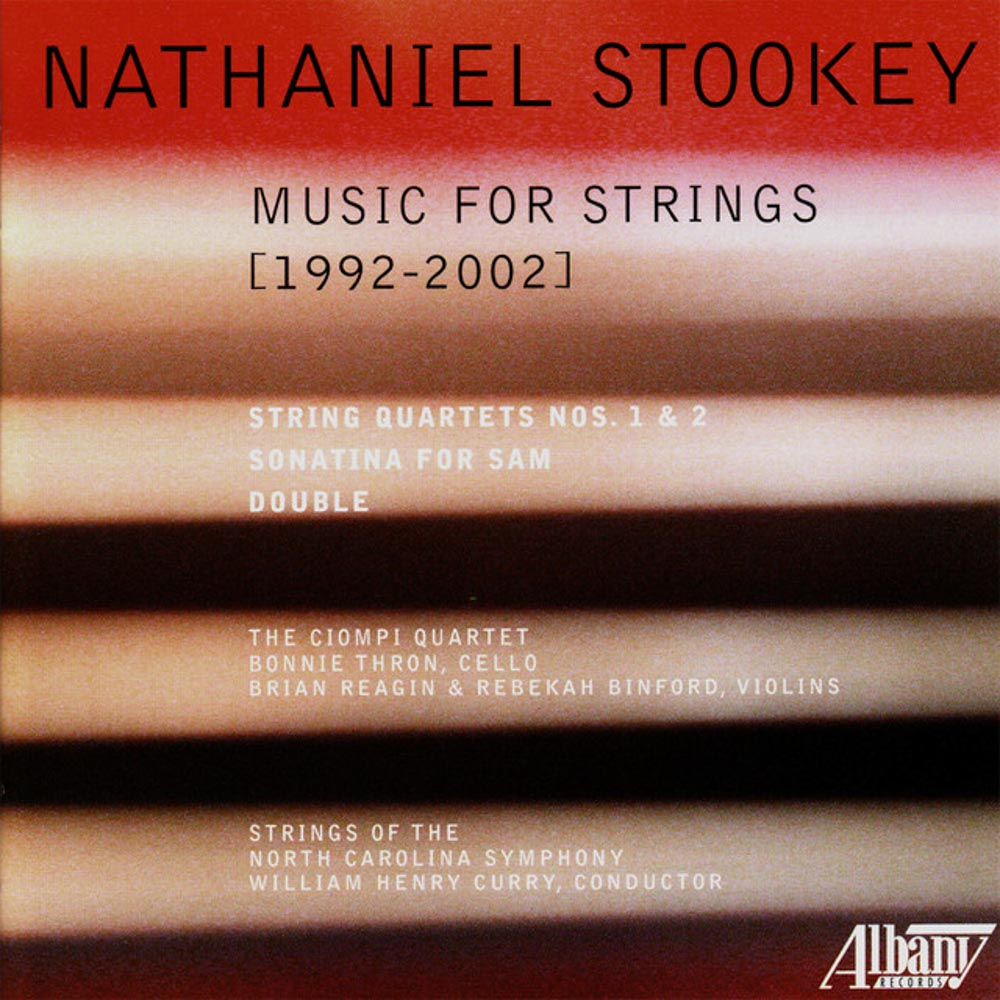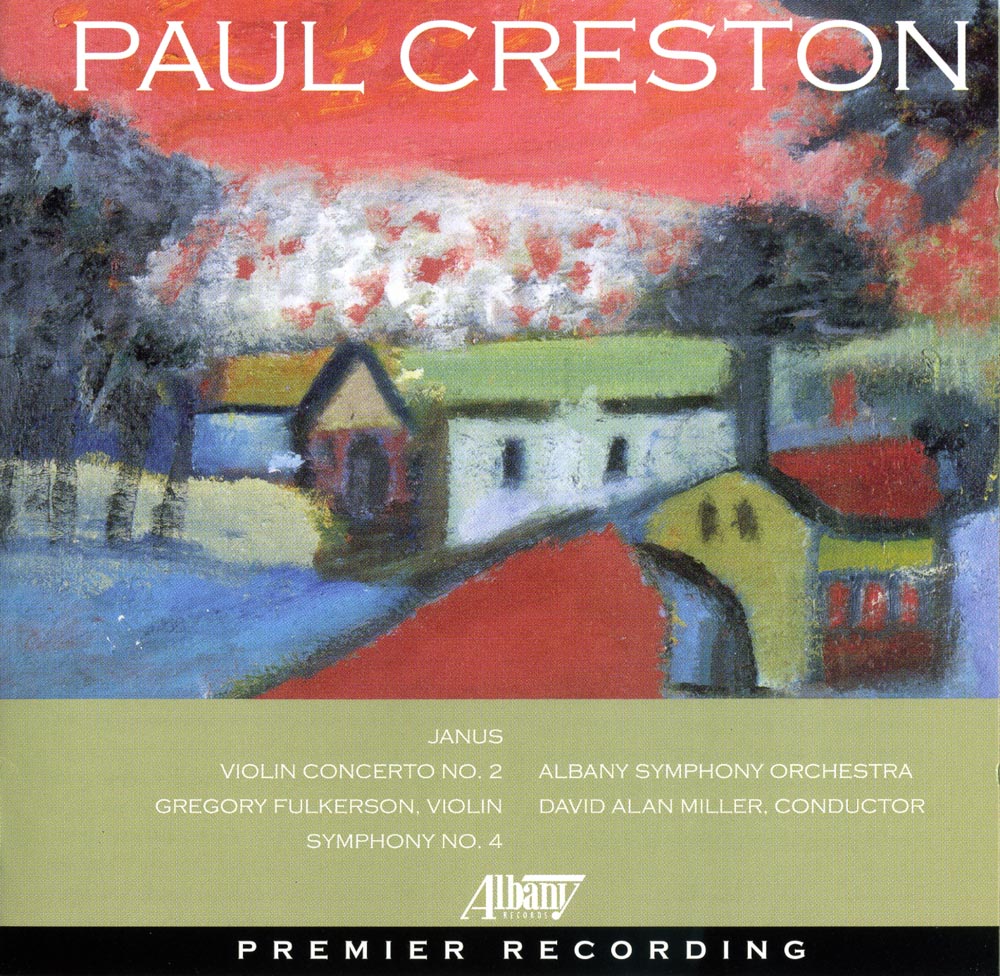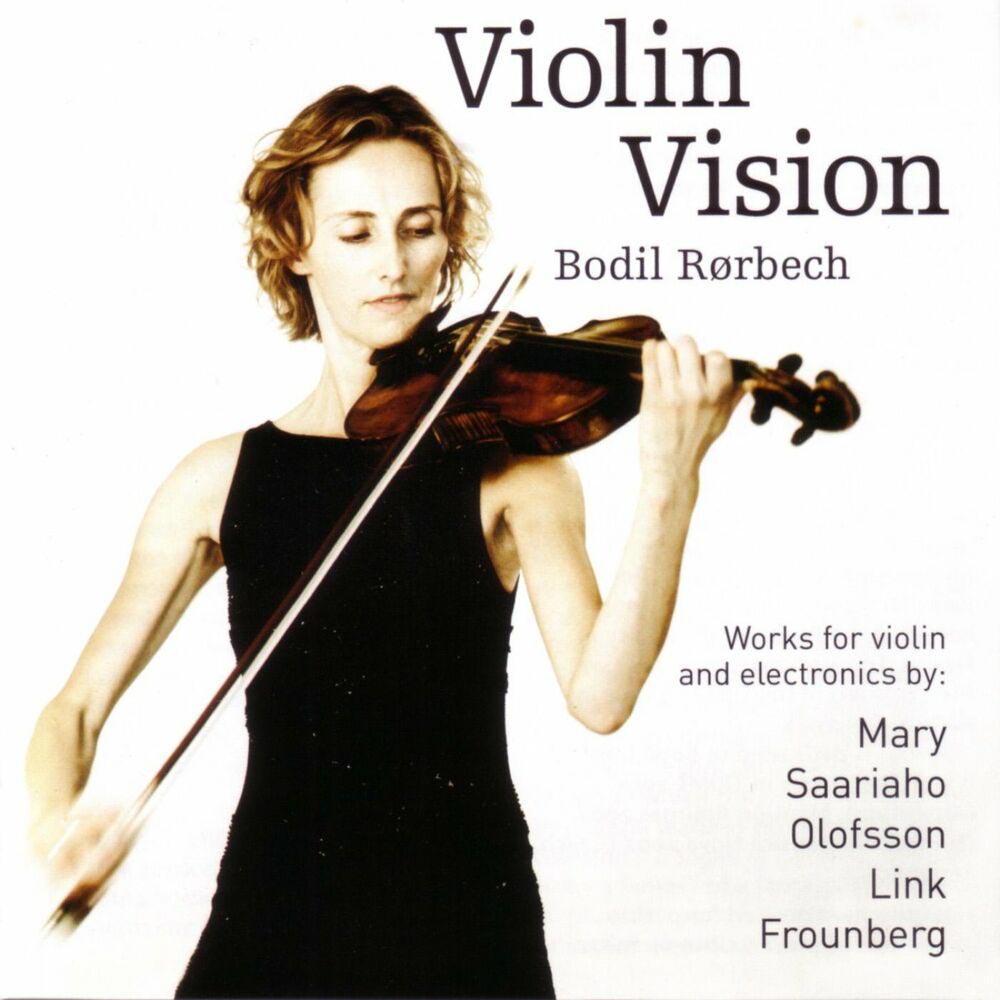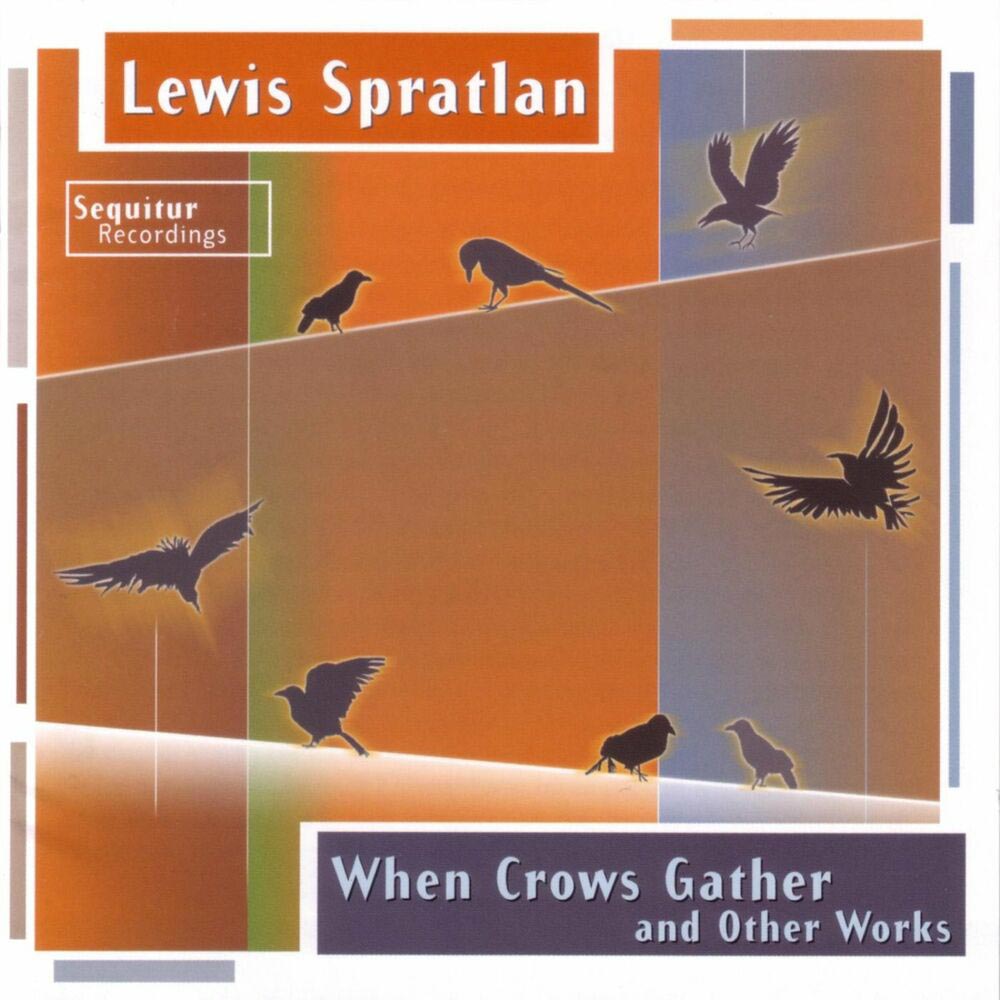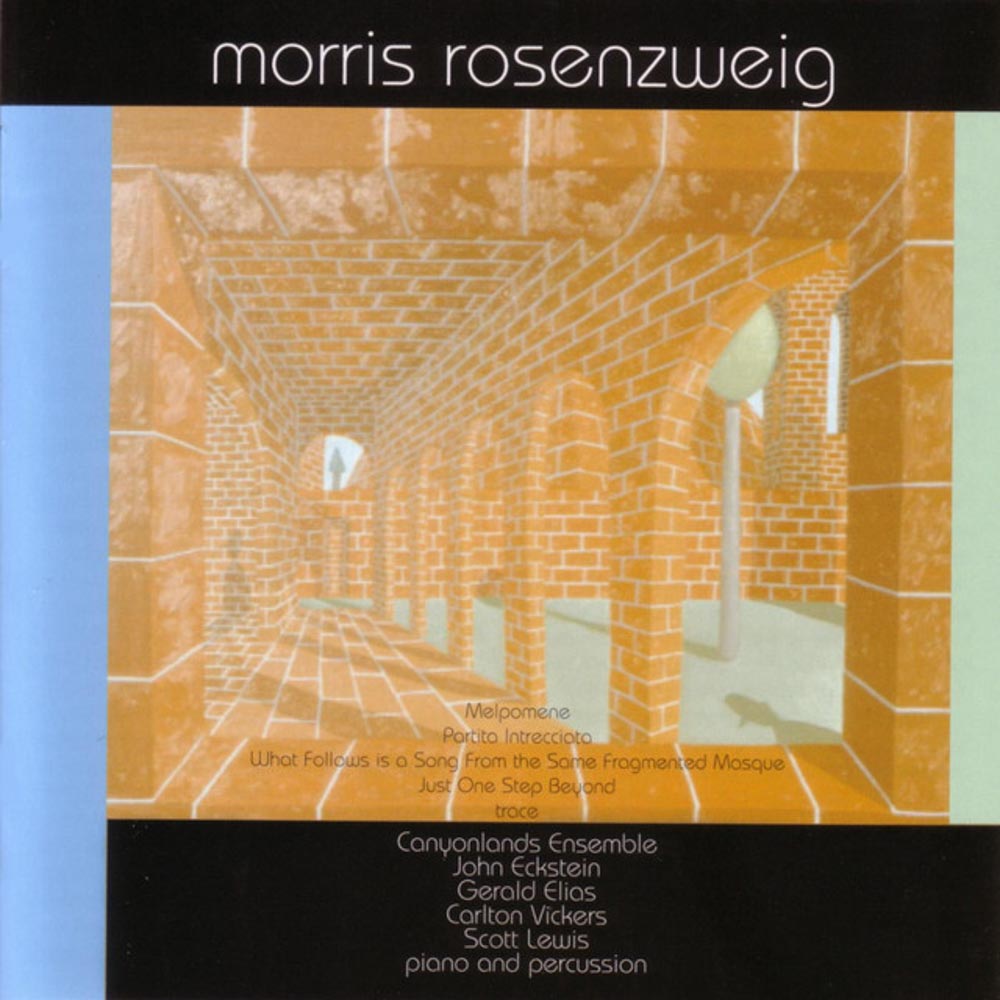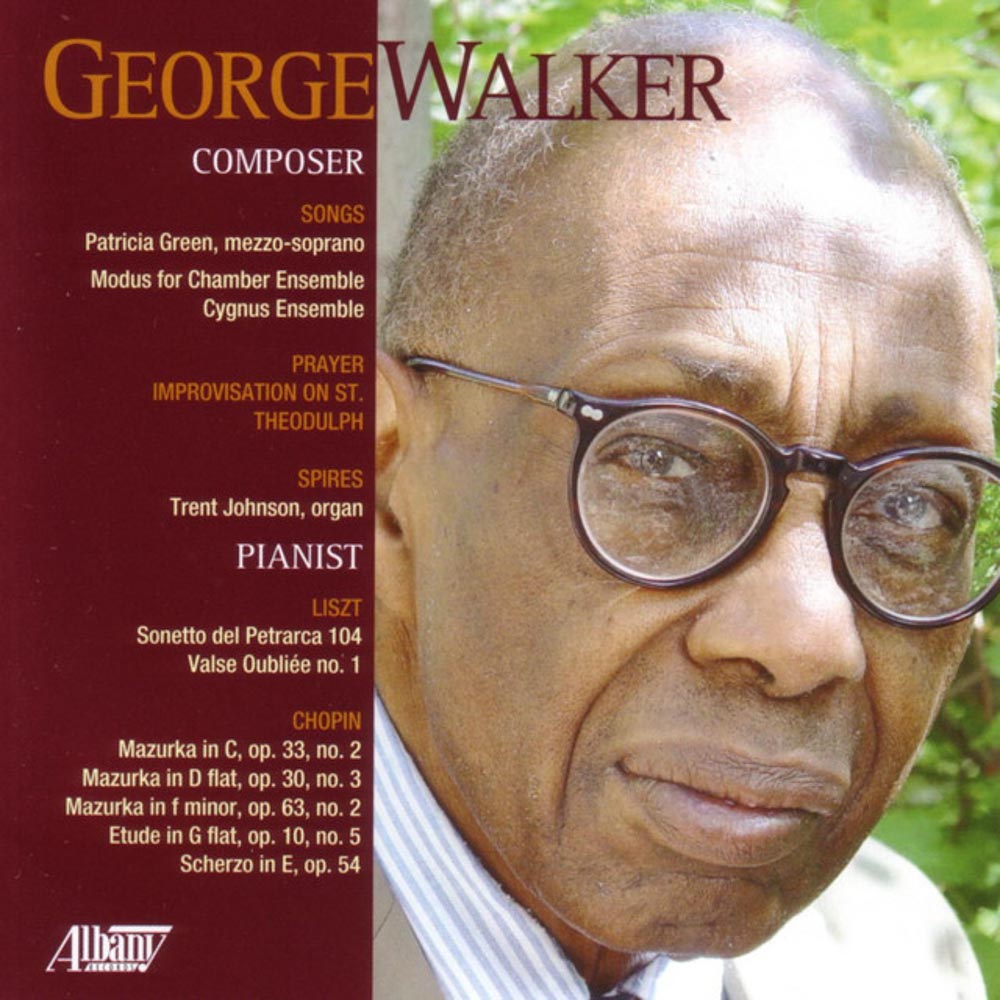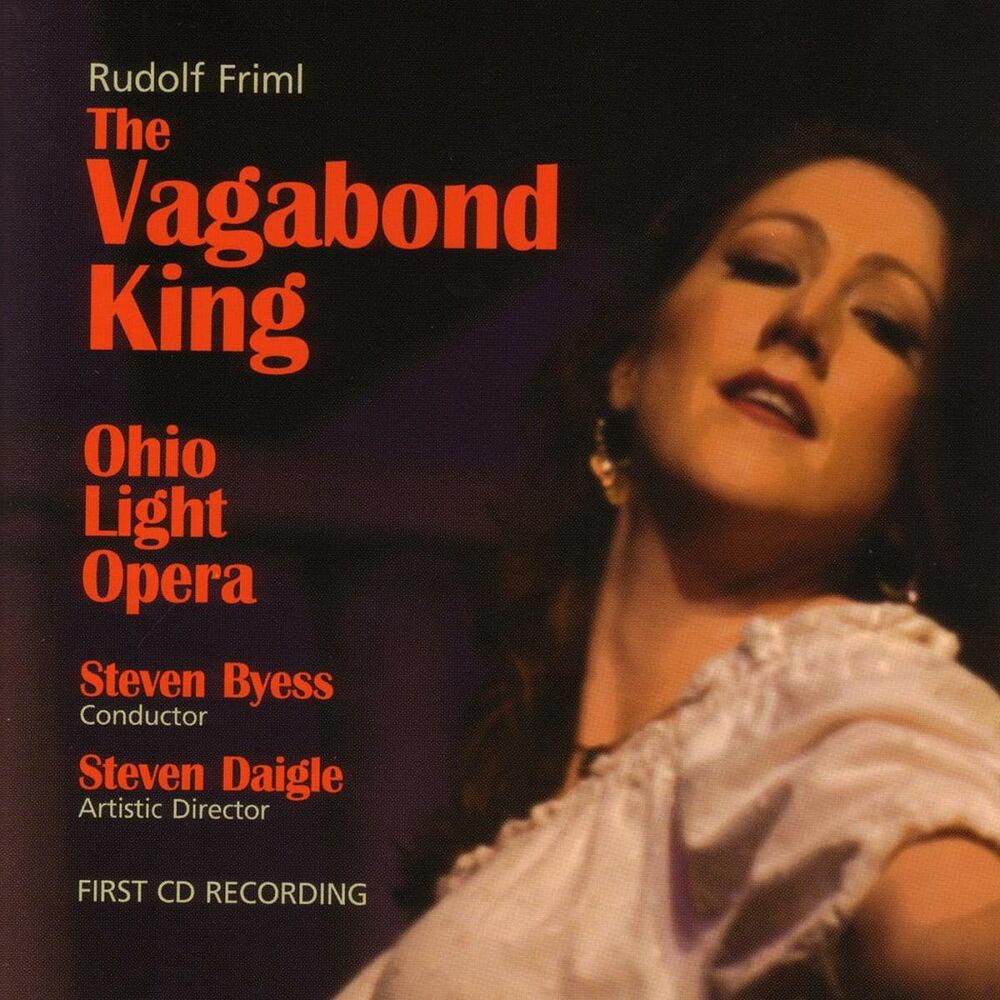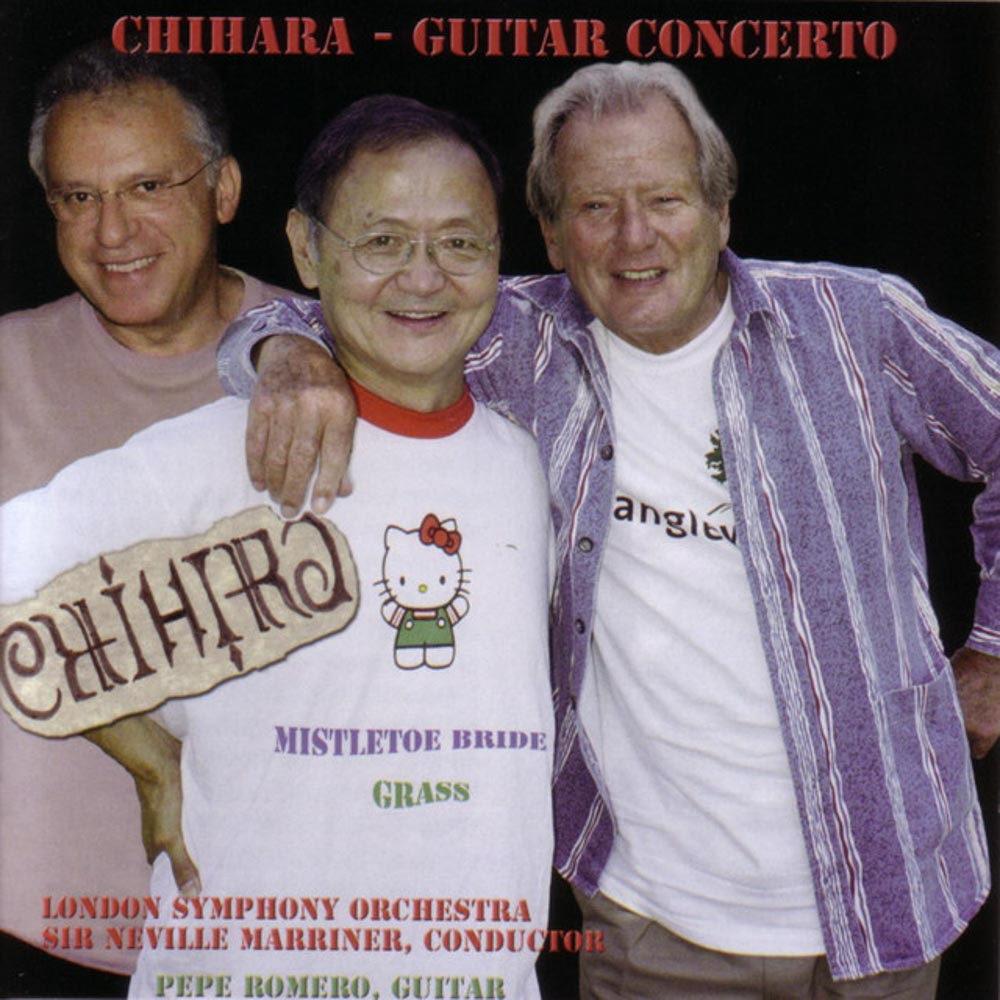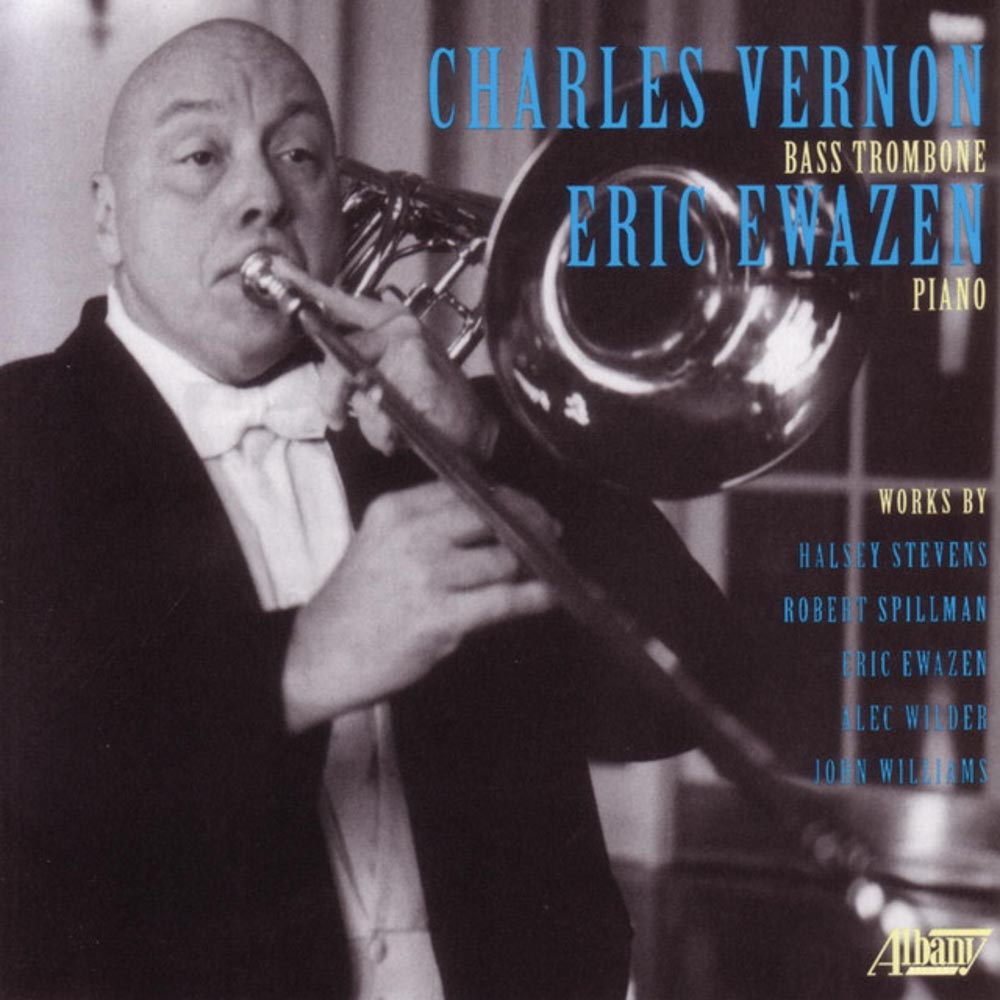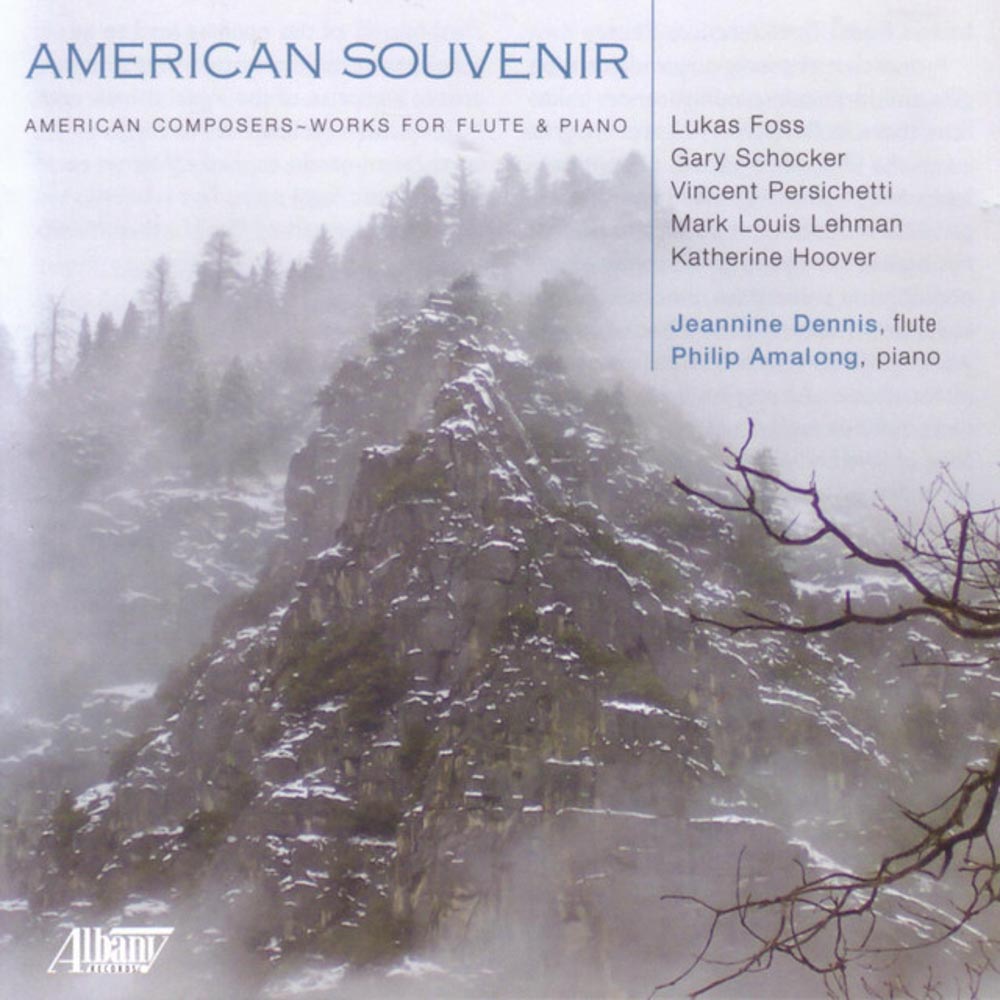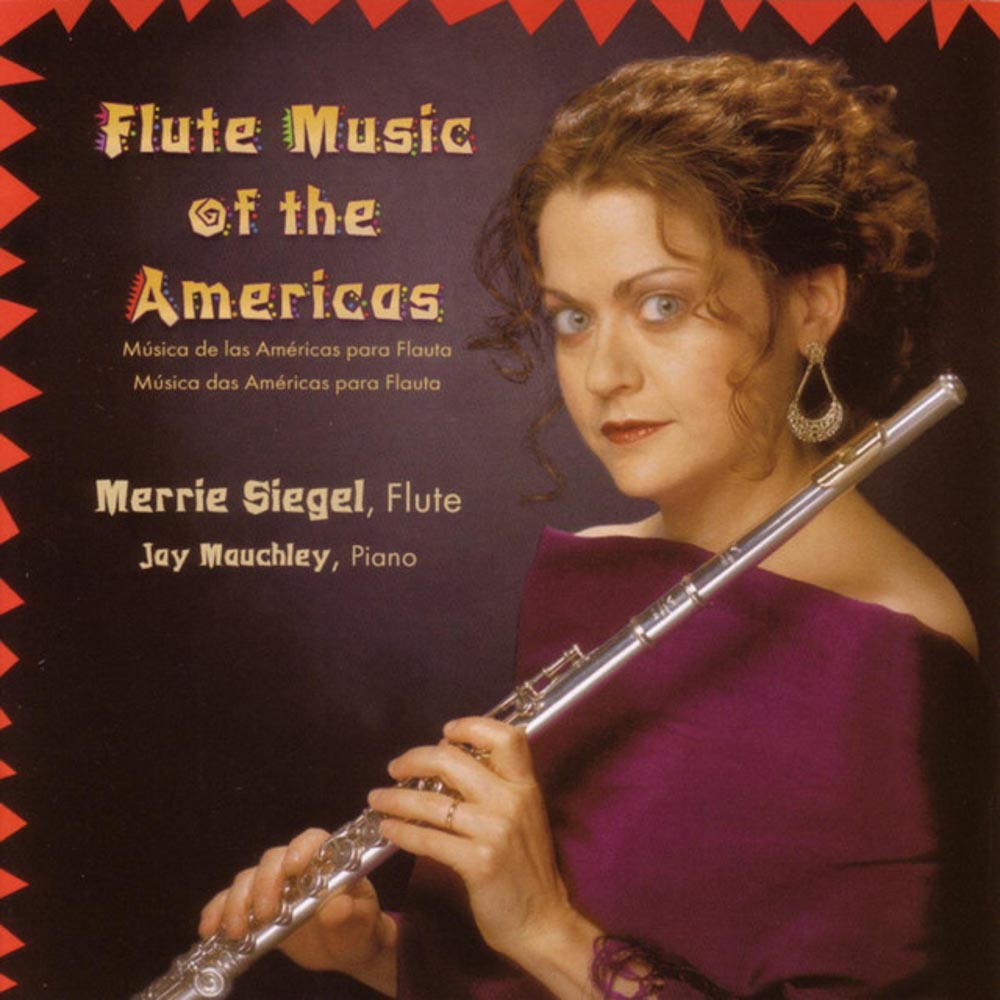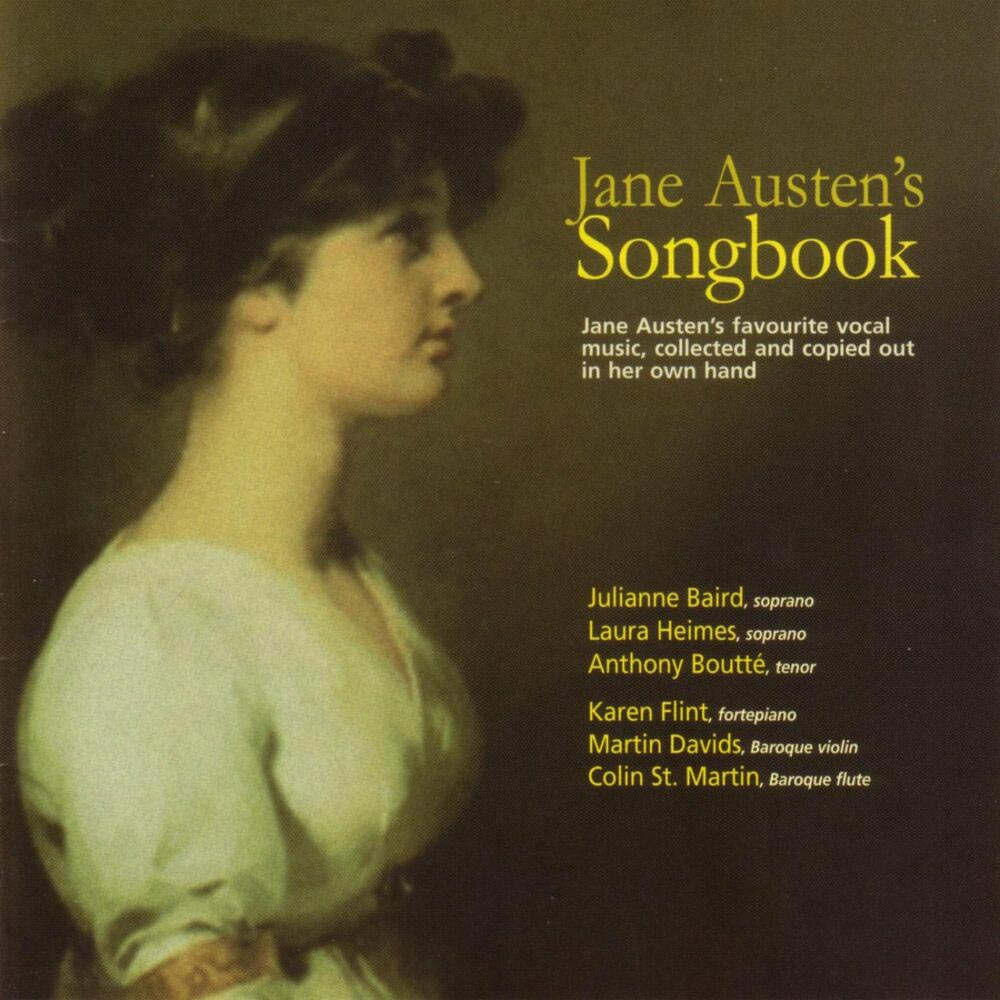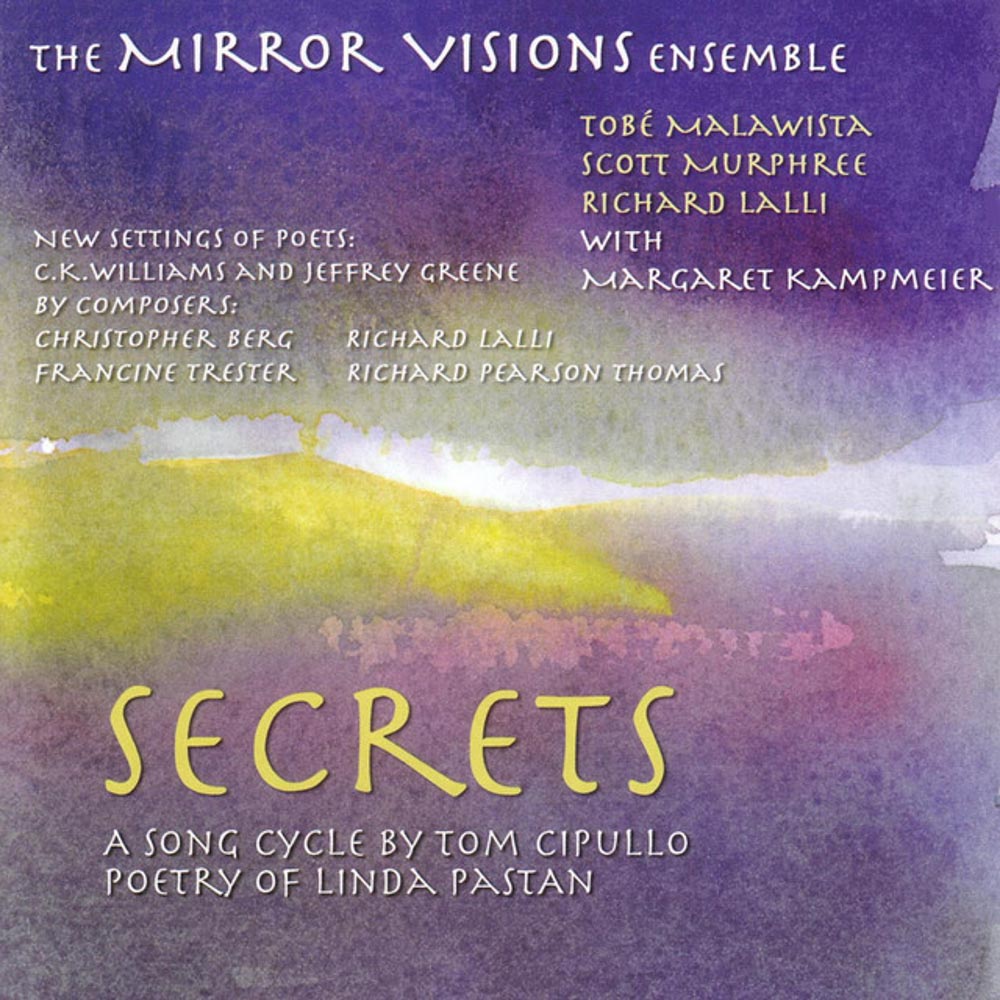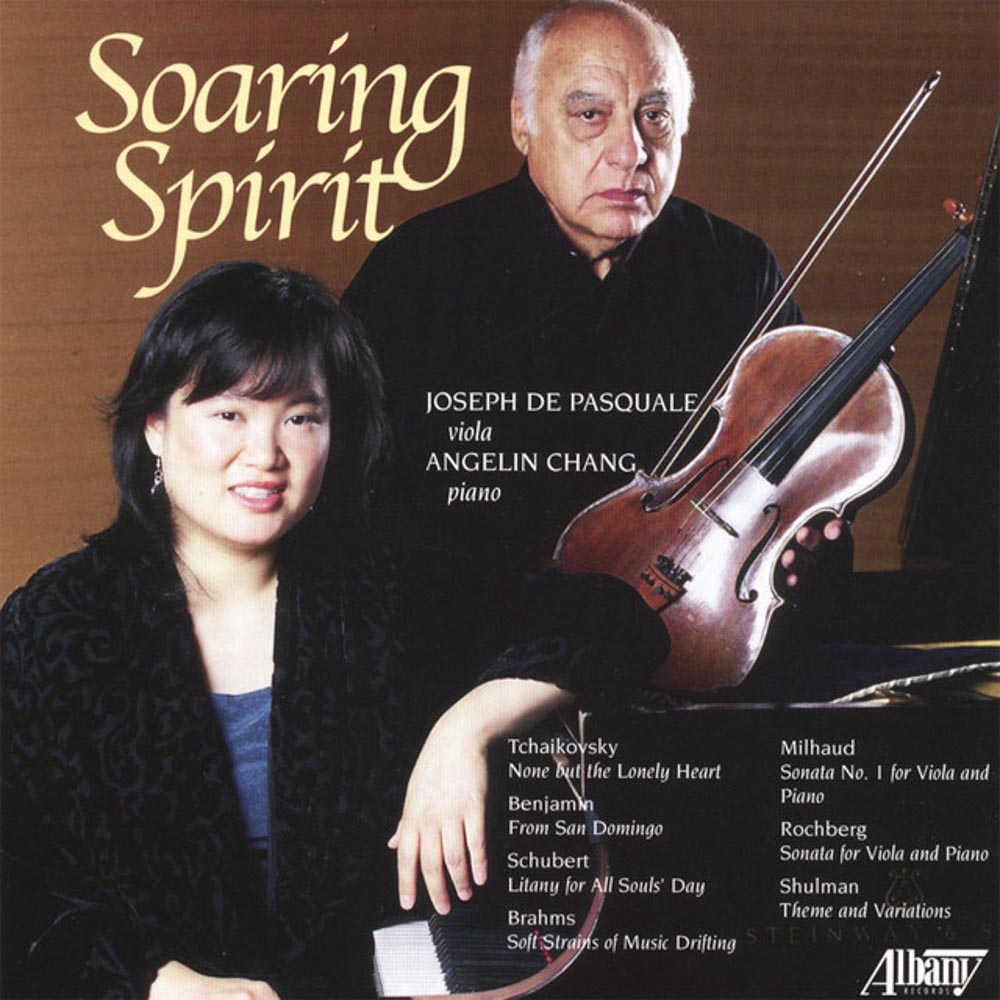Catalog #: TROY1183
Release Date: April 1, 2005Brass EnsembleThe Chicago Trombone Consort was formed in 2008 as a creative outlet for some of the top professional trombonists in Chicago. As a diverse collection of musicians in a city with a rich and storied brass tradition, their mission is to explore new avenues of trombone music in a variety of ensemble situations. This debut recording of the CTC presents a varied repertoire including well-known works for brass, several new critical editions, an outstanding fantasy suite from Strauss’ Alpine Symphony and an exciting new work by American composer Rob Deemer. Lovers of brass music are sure to enjoy the Chicago sound!
Catalog #: TROY0750
Release Date: April 1, 2005VocalJoseph Summer's preoccupation with the works of Shakespeare began in 1991, when he set the soliloquy "To Be or Not To Be" for tenor and piano. This project kindled a spark that grew rapidly and forcefully, and has burned undiminished to the present day. The tally now stands at over fifty settings contained in six books, known collectively as the Oxford Songs. These range from short arias for solo voice to fully orchestrated cantatas for several singers lasting over half an hour. In June 2000, a twenty-minute setting of the famous balcony scene from Romeo and Juliet was commissioned and premiered at Merkin Hall in New York City. Beyond the Oxfordian realm, Joseph Summer has completed seven operas and numerous orchestral works. In 2003, in collaboration with music director John McGinn, Summer founded The Shakespeare Concerts. To date, this series has presented concerts of Bard settings (by Summer and others) to audiences across Massachusetts, as well as St. Thomas in the Virgin Islands. In its second season, it featured singers from Opera Unlimited of London, England. This CD is drawn from the Oxford Songs and represents the debut album of the Shakespeare Concerts.
Catalog #: TROY0749
Release Date: April 1, 2005InstrumentalThe pianist Olga Solovieva writes about the piano music of Boris Tchaikovsky. "If I were to formulate what is most important to me in this music, I would say: sincere, straightforward, and simplicity in expressing ideas, feelings and states of mind that are far from being simple, unambiguous or superficial. A remarkable feature of his works is their saying just what is needed to be said, without any regard for the conventions of music." Once Boris Tchaikovsky was asked about his favorite composer. Having a chance to avoid the question, he nevertheless answered: "If I had to choose, I would choose Mussorgsky." Olga Solovieva graduated from the Russian Academy of Music named after Gnessins (Moscow) in 1998 and took a post-graduate course in the same Academy as an assistant to Professor Leonid Blok in 1998-2000. At the XII International Tchaikovsky Competition in Moscow in 2002, she won a special prize and was awarded a special diploma "The Best Accompanist" (accompaniment to cello). Currently she teaches at the Gnessins Musical College and works at the Moscow Conservatory.
Catalog #: TROY0747-48
Release Date: April 1, 2005OperaLee Hoiby's opera A Month in the Country was originally commissioned and first performed by the New York City Opera in 1964. This performance was recorded live for the 40th anniversary performance of the opera by the Manhattan School of Music Opera Theater. In the New York City of 1964, appearing in the guise of an opera by composer Lee Hoiby and librettist William Ball, Turgenev's A Month in the Country caused concerns for the artistic team. Ball had his first New York success as a director of plays. In 1943, he had directed A Month in the Country and had loved it ever since. In 1959, he had heard Hoiby's first opera, The Scarf, a one acter based on Chekov, at the New York City Opera where Ball was directing Hugo Weisgall's Six Characters and Mozart's Cosi. Ball immediately asked Hoiby to consider collaborating with him on setting the Turgenev. He agreed and the Ford Foundation supported the project and the opera we present here was born.
Catalog #: TROY0746
Release Date: April 1, 2005ChoralThis recording brings together a variety of choral works by 20th century Latin American composers, all of whom find inspiration in folk culture. Chief among the composers represented here is Ariel Ramirez. Born in Santa Fe, Argentina, he roamed the South American hinterland in his early twenties playing piano and studying regional musical traditions. After a brief stint in Buenos Aires, he spent several years in Europe, studying in Madrid and Vienna and teaching music in a German convent. Returning to South America in 1954, he completed his musical training in Buenos Aires, where his politically engaged popular songs rapidly earned him renown as a leader of the nueva cancion movement. His breakthrough onto the international stage came in 1967 with the first performance and recording of the Misa Criolla (Mass in Native Style). The success of this innovative work owes much to its timing. Set in Spanish rather than Latin, it was one of the first major masses composed after the Second Vatican Council mandated the use of the vernacular. It also profited from the period's burgeoning interest in folk music. As a result, the work quickly captured the imagination of audiences worldwide and has received thousands of performances. The mass's reception abroad, where its style was perceived as novel and exotic, actually helped stimulate appreciation for native culture among more skeptical audiences back in Argentina. Like all Ramirez' major works, the Misa Criolla draws substantially on the folk traditions in which he immersed himself as a young man. There are complete English texts for all the works included in the program booklet.
Catalog #: TROY0736
Release Date: April 1, 2005ChoralAlexander Levine was born in Moscow and studied piano from the age of six at the Gnessin Music School, and later he took up the clarinet. Upon graduation he was offered a place at the Moscow Gnessin Music Academy. During his college years he also held the position of Principal Guitar in the Orchestra of Russian National Radio and Television. In the years that followed he established himself as a composer working in collaboration with a variety of highly acclaimed performers in Russia. Since 1992, he has lived in the United Kingdom. He then continued to pursue his musical studies at the Guildhall School of Music and Drama where he studied with among others, Simon Bainbridge. The title Kolokola translates into English as church bells or rather the toll of the bells. A great deal can be said about the religious, historical, and philosophical aspects of bell ringing, and in Russian culture it had always been a particularly powerful, almost archetypal image. This image of church bells prevails throughout the entire work, which was originally conceived as a projection of various aspects of human existence with a wide range of historical, religious and Russian folklore cross-references. There are complete Russian/English texts included in the program booklet.
Catalog #: TROY0735
Release Date: April 1, 2005ChamberSteven Mackey has established himself as one of the most gifted and original American composers to emerge in recent years. Born in 1956, in Frankfurt, Germany to American parents, he was raised and educated in the United States. His early training in performance was as a classical and electric guitarist and Baroque lutenist. In 1977, he toured Europe as a lutenist under the auspices of the University of California; he graduated summa cum laude from that Institution. His studies culminated in a Ph.D. in composition from Brandeis University. Mackey is now Professor of Music at Princeton University, where he has been a member of the faculty since 1985. Mackey's idiom, a multi-layered world of rhythm and sonority, draws its expanded harmonic palette from western art music, its wit and vivacity from the imaginative transformation of popular music elements. His chamber music sometimes features re-tuned instruments and microtones. His orchestral works display consummate skill in their handling of instrumental color and texture. Tilt, commissioned by the American Composers Orchestra, received its premiere in 1992 under the direction of Dennis Russell Davies. Of that performance, Tim Page of Newsday wrote: "One was reminded of a radio caught between frequencies: timbres bang and shimmer, there are arpeggios and teasing references to musical clichés, and despite some occasional violent fortissimos, the mood throughout is lithe, subtle and more than a little playful. Anything can happen - and most of it does." His concertos offer a fresh look at the medium. In his first concerto, Banana/Dump Truck from 1994, the ensemble plays a jazzy vamp as the cello soloist emerges from the wings, like a variety show guest.
Catalog #: TROY0732
Release Date: April 1, 2005OperaLuigi Mancinelli was a noted Italian composer of works for the stage, concert hall and church as well as for the early cinema. After studying in Florence, he served as an orchestral cellist before becoming a conductor at the Teatro Morlocchi in Perugia. As if to anticipate the celebrated rise to fame of Arturo Toscanini, Mancinelli stepped from his role as cellist to the podium to conduct Verdi's Aida, a feat which earned him an engagement as conductor at the Teatro Apollo in Rome where he appeared until 1881. Subsequently, his growing fame took him for conducting engagements to Paris, Milan, Bologna, Venice, London, Madrid and the Metropolitan Opera in New York. During his nine seasons as conductor there he led the first Met performances of Werther, Falstaff, Samson and Dalilah, Le Cid, The Magic Flute, La Boheme, Don Giovanni and Ernani, as well as his own opera Ero and Leandro. He also conducted in Rio de Janeiro, Buenos Aires and Lisbon - where he committed suicide in the aftermath of a bankruptcy. His works for the stage reflect a dramatic temperament. His first opera Isora di Provenza succeeded in Bologna in 1884, but failed in Naples in 1886. His next opera, Ero and Leandro, brought him international attention via premieres in London and New York, its libretto by the admiring composer and librettist, Arrigo Boito. Paolo and Francesca from 1907 failed - in part due to the unfashionable idealism and classicism of its libretto in an era when the ideals of verismo opera, championed by Mascagni, Leoncavallo and Puccini, were exciting audiences every where. However, the music of Paolo and Francesca is both rich in texture and has moments of real inspiration.
Catalog #: TROY1545
Release Date: March 1, 2005OrchestralThe Albany Symphony conducted by David Alan Miller offers a recording of major works by the illustrious American composer John Harbison. The Great Gatsby Suite comes from Harbison's opera and concentrates on the instrumental music. Darkbloom: Overture for an imagined opera comes from material for an opera project that Harbison decided not to continue. The newest work on the recording, Closer to My Own Life, uses texts extracted from stories written by Alice Munroe, Harbison's favorite prose writer. Acclaimed soprano Mary Elizabeth Mackenzie joins Maestro Miller and the Albany Symphony for this work.
Catalog #: TROY0745
Release Date: March 1, 2005InstrumentalPeter Kairoff writes: "The music of George Whitefield Chadwick is not nearly as well known as it ought to be. Although widely respected and admired in his lifetime, his music fell into relative obscurity after his death, and is only recently performed once more with any frequency. His piano music, in particular, has suffered from neglect: very few of the pieces on this disc have ever been recorded before. Why this should be so remains something of a mystery, for many of Chadwick's piano works display the same inventiveness, charm and craftsmanship found in his orchestral and chamber works. The title of this disc - American Character - reflects the fact that all of Chadwick's piano music is written in the style of the 'Character Piece': brief, memorable evocations of one particular mood or image. Chadwick was certainly able to craft large-scale forms when he wanted to, as he did in his symphonies and chamber works to great effect. But his piano works are all on a smaller scale, like Mendelssohn's Songs Without Words, Grieg's Lyric Pieces, and so many other piano pieces of the nineteenth century. And like those models. Chadwick's piano music often evokes the world of Art Song, that wonderful and evocative fusion of poetry and music which was so popular in the nineteenth century. Like Art Song, these piano pieces capture a single vivid mood or visual image: a rushing stream, an aspen tree shuddering in the breeze, or even a group of noisy frogs. At his death in 1931, Chadwick was hailed by the influential critic Olin Downes in The New York Times as the composer who "represents most completely the body of serious American music." Taste shifted, of course, and all too soon Chadwick's music was forgotten, or dismissed as old fashioned. But now taste seems to be shifting back, and we are better able to appreciate the creativity, craftsmanship, and charm of a composer who himself was something of an American Character."
Catalog #: TROY0742
Release Date: March 1, 2005OrchestralThe conductor James Freeman writes: "When a young composer named Gerald Levinson applied for a position in Swarthmore College's Music Department (of which I was then acting chair) more than 20 years ago, I was struck by an extraordinarily luminous, beautifully written piece called in dark which he had included in his portfolio. That piece and several others in the same folder showed so much imagination, feeling for color, and downright compositional skill that I had no doubt this was the composer we were looking for. A heartfelt and passionate letter from Olivier Messiaen only added to my departmental colleagues' and my own conviction that Levinson must be "the real thing." We were counting on the new person to teach the major part of our theory cycle, and young Levinson had absolutely no teaching experience of any kind. Nonetheless, we took a chance and hired him. Anyone who wrote such wonderful music had to be a great teacher and he was. When Orchestra 2001 was founded in 1988, it was the music of George Crumb (which is currently being recorded for Bridge) and Gerald Levinson that I especially wanted to bring to new audiences." The critic Paul Griffiths has written: "What must thrill anyone who comes in contact with Gerald Levinson's music is its sheer joy in sound, and the decisiveness with which it sings or dances its way through time.... In sympathy with sound, in sympathy with time, Levinson's music is close to the natural phenomena on which all music depends. Two things spring from this. One is that his music can easily evoke other natural phenomena: the sea, the stars, rugged landscapes. The other is that this music is in tune with other kinds of music from around the world. Levinson's resources are classical western: he writes for the symphony orchestra, for the piano, and for chamber groupings of conventional instruments. His disciplines, too, are those of the western tradition. But the east was present in his music even before his first trip there. His works, right through his career so far, exist on companionable terms with Mahler's music and with Bali's, with Ravel's and with Japan's, with Messiaen's and with India's, with Stravinsky's and with China's, with America's symphonic tradition and with Tibet's slow melody. Out of all this he is creating, piece by piece, a world of his own."
Catalog #: TROY0740
Release Date: March 1, 2005VocalPaul Sperry writes: "I've always loved to perform humorous pieces, whether slyly witty or raucously funny. It seemed irresistible to collect these four marvelous pieces together on a CD since they are all by American composers and writers and they all deal with religious topics in, as Woody Allen puts it, 'a somewhat dubious way.'" Classical jazz achieved international recognition in 1925, when Louis Gruenberg's The Daniel Jazz was chosen to represent American music at the Venice Festival of the International Society for contemporary music, where it won overwhelming success. Based on a sermon poem by Vachel Lindsay, this piece was written during a period when Gruenberg was exploring the possibilities of popular jazz as an idiom in classical music. In 1924, he wrote: "It has become my firm conviction that the American composer can only achieve individual expression by developing his own resources...these resources are vital and manifold, for we have at least three rich veins indigenous to America alone: jazz, Negro spirituals and Indian themes." Alla Borzova writes: "Mother Said borrows its title from the book by Hal Sirowitz. His witty and touching poetry is about families and relationships. In Mother Said, I use a variety of musical styles and techniques: rap, Klezmer, Dixieland, a Chinese folk tune and a 12 tone row." The text of Tango was actually compiled by Robert Xavier Rodriguez from news clippings, letters and sermons from the height of the tango craze in 1913-1914. There are three short scenes played without pause and the tenor plays all three roles. Larry Alan Smith writes: "The Scrolls was written for my New York debut concert in 1982, and it was premiered by Paul Sperry. As it was meant to conclude the evening, I looked for something unusual, entertaining and memorable. Woody Allen's tale immediately appealed to me, but only after beginning to compose the work did I realize how challenging it would be to set a humorous text effectively."
Catalog #: TROY0734
Release Date: March 1, 2005OperaIt, regrettably, comes as a surprise to many, including highly informed and well-trained musicians that among the most important of the compositions of William Grant Still are his several operas. (NOTE: The Eileen Southern Biographical Dictionary of African American and African Musicians of 1982 lists six operas, but in fact there are nine). In addition to Highway One on this recording, there are also the operas: Blue Street, Troubled Island, A Bayou Legend, A Southern Interlude, Costaso, Mota, The Pillar, and Minette Fontaine. Judith Anne Still writes: "I will say this, my father had three loves in his life, in this order of importance: the Creator, his family, and the world of opera. He wanted most of all to be known as a composer of operas of great merit. He worked towards this goal with all his heart and mind, from the age of 14 until he became ill in the early 1970's, for 75 years. Most opera companies in the 20th century would not do the operas of William Grant Still because of his color. The fact that Still operas were not done, while Porgy was done, broke the composer's heart. There is much to be accomplished by way of justification. I am grateful to my parent's for dedicating this opera to me and my family, and to Louise Toppin, Philip Brunelle and VIDEMUS for putting their enormous talents and energies into this project. Bravo to the immortals who have opened the road to realizing the long-ago dream of a kind, noble and magnificently gifted man."
Catalog #: TROY0733
Release Date: March 1, 2005OrchestralRobert Ackerman is a rarity among musicians in our day and age: more than a performer who composes or a composer who performs, he transcends musical genres and styles, not only in his compositions, but performs all styles of music on four instruments (flute, clarinet, saxophone and piano). As if this were not enough, Ackerman has made a life of the study of acoustics and instrument design and has shared this information with generations of students not only as a public school music teacher, but also as an international lecturer and published author. His compositions have received Ford Foundation and National Endowment grants; he has performed with Steve Reich and Philip Glass; his big band charts and jazz tunes have found their way into the repertoire of some of the most influential jazz players of his age; and he has performed at most of the important jazz festivals the world over. Robert Ackerman was born in Irvington, New Jersey in 1940. His music studies began in New York City with Joe Soldo (Bell Telephone Hour) and the legendary Joe Allard (Juilliard School of Music) continuing with master teachers such as Thomas Nyfenger (Yale University), Keith Underwood, Eddie Saulkin, Harvey Boatright (Dallas Symphony), and Bob Morris (New York Philharmonic). Ackerman received degrees from Montclair State University and Columbia University in New York. After spending the 1960s in the New York concert music scene, Ackerman left for Europe and entrenched himself in the jazz scenes of Italy, Switzerland, France and Sweden, only to return to the States in 1985. This recording marks the first commercially available representation of his concert music.
Catalog #: TROY0731
Release Date: March 1, 2005ChamberJust as we did a few years back with the music of Andrei Eshpai, we now undertake a series of recordings devoted to the music of Boris Tchaikovsky in honor of what would have been his 80th year. The series will contain forgotten masterful performances by famous musicians, some of them now deceased, including recordings from the private archives of the performers as well as brand new world premiere recordings organized by the Boris Tchaikovsky Society in Russia. The perception of contemporary Russian music in the West is currently under revision. The post-Shostakovich era was once thought of as no more than a haven for the avant garde, with names such as Edison Denisov, Alfred Schnittke, and more recently, Sophia Gubaidulina, Galina Ustvolskaya, and others, claiming the limelight. But times are changing. A handful of lesser-known composers whose work stands at a stylistic crossroads between Shostakovich and their more celebrated counterparts are gradually coming into focus. These composers - they include such figures as Mieczeslav Weinberg, Andrei Eshpai, Boris Tishchenko, Georgi Sviridov, Gavriil Popov, Nikolai Peiko, and Revol Bunin - demonstrate that Russian music in the latter half of the 20th century is far richer and more varied than was previously imagined. Included in this distinguished company is Boris Tchaikovsky, hailed by such eminent figures as Shostakovich and Rostropovich as one of the most original voices of his generation (he bears no family relation to his famous 19th century namesake). His work offers an ever-fresh source of lyrical inventiveness and new formal possibilities, written in a contemporary style that embraces beauty, depth of expression, and accessibility. He was trained at the Moscow Conservatory at the worst of times: during Stalin's notorious postwar assault on the arts. To his credit, he refused to take part in the officially authorized tirades against the terrorized Shostakovich, who was banned from the Conservatory at the time, and whose former students, Tchaikovsky being one of them, were branded as "contaminated." He graduated in 1949, not totally unscathed himself, yet having studied under three of the most prominent masters of instrumental music of the time - Shostakovich, Miaskovsky and Shebalin. The cultural thaw of the early 1960s opened many doors for Soviet composers. Tchaikovsky's own artistic development was also in flux. The lyricism that lay at the base of his musical thinking was undergoing profound metamorphosis. That lyricism was progressively becoming couched within a fresh, mosaic style whereby the music's surface is carved into a succession of bold, accentuated utterances. The curious rhythmic rigidity of these utterances - a Tchaikovsky hallmark - is offset by considerable flexibility in the music's other variables, such as increased levels of dissonance and colorful instrumental contrasts. He had now found his own mature voice, which allowed him to create a powerful new language that was distinctly Russian in sound, thoroughly up-to-date, and capable of a wide range of expression. It is the language for all his future compositions and can be heard in this wonderful new CD.
Catalog #: TROY0719
Release Date: March 1, 2005ChamberComposer Frank Lewin has incorporated folk songs and popular music from various ethnic traditions in his scores and films, television programs, and plays, as well as in his opera Burning Bright (Albany Records: TROY 469/71). Each tune was adapted to the expressive requirements of the particular subject. Occasionally original music was composed in a particular style, as "source music," i.e. music heard within the action of a scene. Two eminent performers of the recent past, both now deceased, open and close this collection: violist Walter Trampler and fiddler Johnny Cunningham. In between, artists of equal merit perform music from a variety of sources. Frank Lewin has written scores for films, television programs, plays, and historical outdoor dramas. Among his concert music are song cycles and choral works, including a requiem which was first performed in 1969, during a memorial service for Robert Kennedy in the chapel of Princeton University, and Music for the White House, for which he conducted members of the Westminster Choir and the United States Marine Band. The composer was a member of the faculty of the Yale School of Music from 1971 to 1992, teaching composition for film. During this period he also taught the course Music in Modern Media at Columbia University's School of the Arts.
Catalog #: TROY0717
Release Date: March 1, 2005ChamberNathaniel Stookey was born and raised in San Francisco where he studied violin and composition. At seventeen, he was invited by Charles Wuorinen to create a chamber work for the San Francisco Symphony's New and Unusual Music Series, the youngest composer ever to be so honored. Since then, his music has been performed by a broad range of distinguished ensembles, from Turtle Island String Quartet to the Philadelphia Orchestra. Stookey was a Composition Fellow with the Halle Orchestra, under Kent Nagano, from 1993 to 1996 and Composer-in-Residence with the North Carolina Symphony, under Gerhardt Zimmermann, from 2000 to 2003. He has studied with Donald Erb, Andrew Imbrie, George Benjamin, Stephen Jaffe, and Scott Lindroth. Today he lives in San Francisco with his wife and two children. He writes: "As a violinist, string music has always been my touchstone. I have put more of myself into this medium than any other, much as a pianist-composer might be expected to channel his most personal statements into works for his own instrument. But the piano can be a world unto itself, while the strings are most often thought of in the plural - as a family. Growing up in the orchestra, we plucked together, bowed together, and rose together on the conductor's cue. For us, the pay-off was that, in behaving like a single instrument, we eventually came to sound like one. This record is a result of a decade of collaborations with string players, from my early twenties to my early thirties. More specifically, it is the culmination of an intensive three-year residency with the North Carolina Symphony, the Ciompi Quartet and the MallarmT Chamber Players, during which all four works included here were performed repeatedly and recorded."
Catalog #: TROY0737
Release Date: February 1, 2005OrchestralRay Bono writes in his program notes: "Fiercely independent. Self Reliant. Self-disciplined. Such descriptions invariably surface in accounts of Paul Creston's life. More emphatic is the assertion that, excluding keyboard lessons, he was "entirely self-taught" in music. And, in fact, the short, affable Italian-American was in many ways a supremely self-made man, even down to his name. Born on October 10, 1906 in Manhattan to an impoverished couple from Sicily, he was christened Giuseppe Guttovergi (the family name would later be recast as Guttoveggio). In childhood he was also called Joseph but by 15 had been dubbed Cress by his friends, after Crespino, the role he played in a high-school staging of Goldoni's comedy, The Fan. Before long, he reworked this Cress into a fuller, solidly American-sounding name - and exit Giuseppe-Joseph-Guttovergi-Guttoveggio; enter Paul Creston. He started composing at the age of eight, soon after his parents, recognizing his musical ability, managed to get him a piano and a teacher. Within a few years, he was capable enough to substitute for the teacher when the man was ill - and canny enough to deem the man musically incompetent. He moved on to better piano teachers, took organ lessons too and plunged into a ferocious self-directed study of the works of Bach, Rameau, Scarlatti, Rimsky-Korsakov, Chopin, Debussy and Ravel. These masters of form, harmony and color, he would always maintain, were his true teachers; from them alone did he learn composing and orchestration. From the onset of the Great Depression, when he wasn't trying to sell insurance or real estate, Creston was accompanying singers as a Musicians Emergency Fund member - and pondering a career as a writer. Or a concert pianist. Or a composer. After a favorable response to a set of dances he wrote for solo piano in 1932, and to his incidental music for a theater piece - and encouraged by composer and concert organizer Henry Cowell, he sat down, took stock of his talents and decided to concentrate seriously on composition. His early modest pieces were successful enough to earn him a positive mention in Aaron Copland's 1936 article about "America's young men of merit" (although Copland grouped him with rising composers whose work tended to be "somewhat" abstract"). Larger works followed, and more attention. He received two successive Guggenheim fellowships. And his Symphony No. 1, debuting in 1941, won the New York Music Critics' Circle Award and later took first prize in an international competition in Paris. The three orchestral works on this disc - a symphony, a concerto and what amounts to a musical diptych - are from Creston's finest period. Never before recorded for commercial release, they exemplify his talent for uniting lyricism with propulsiveness to make a considerable emotional impact."
Catalog #: TROY0728
Release Date: February 1, 2005InstrumentalBodil Rorbech was born in Denmark in 1967. She debuted as a soloist in 1990 at Tivoli Concert Hall in Copenhagen where she played Alban Berg's Violin Concerto. The following year, she also had her official debut from the soloist class at the Royal Danish Academy of Music in Copenhagen. She has also studied in Germany and in the USA with Joseph Silverstein. She performs regularly as a soloist in Denmark and abroad, often premiering new works. For the last five years, she has also been a member of Ensemble Ars Nova, based in Malmo, Sweden. In the summer of 1995, she received a scholarship for an intensive course in new performance technologies at the Center of New Music and Audio technologies in Berkeley, California. Inspired by the possibilities, she then began giving recitals featuring interactive performance with electronics. She has received the Jacob Gade Prize, the Music Critic's Award, the Bolero Prize from the Danish Broadcasting Company and the Composers Union's Musician Prize of Honor.
Catalog #: TROY0726
Release Date: February 1, 2005InstrumentalMadeleine Shapiro is a recognized figure in the field of contemporary music as a cellist, producer of chamber music concerts, and as a teacher. She has appeared as a solo recitalist throughout the United States, Europe and Latin America. She has a strong commitment to performing works by living composers and has a repertoire of over 40 solo works by composers from the Americas, as well as Europe and Asia. The chamber ensemble ModernWorks, founded by Madeleine in 1997, presents an annual New York City concert series and has been heard yearly on the New York Consortium for New Music's prestigious Sonic Boom Festival and at other New York venues, including a series at the Museum of Arts and Design, as well as on NPR. She teaches at the Mannes College of Music in New York City, where she directs the Contemporary Music Ensemble and teaches classes in the performance practice of contemporary music. She writes: "My love for electro-acoustic works began as an undergraduate at The State University of New York at Stony Brook where it was suggested by the eminent violinist Paul Zukofsky that I learn Mario Davidovsky's Synchronisms No. 3, my first experience with a work by a living composer. My subsequent performance of this piece led to a life-long commitment to both works by living composers, and the electro-acoustic medium. The pieces on this CD were chosen for their wide range of musical expression, and for the variety of electronic technology they employ. Since 1964, when the Davidovsky was written, the developments in technology have been astounding. As a performer, I have found this revolution exhilarating, and embrace the expressive and coloristic possibilities that such technology has afforded us."
Catalog #: TROY0725
Release Date: February 1, 2005ChamberLewis Spratlan, winner of the Pulitzer Prize in 2000, was born in Miami. His music is performed regularly throughout the United States. A number of works have toured widely, as far afield as Russia and Armenia. Spratlan's work has been supported by fellowships from the Guggenheim and Massachusetts Artists Foundations, the NEA, Tanglewood and the MacDowell Colony. His opera Life is a Dream won a top prize in the Rockefeller Foundation-New England Conservatory Opera Competition and appeared on the New York City Opera's "Showcasing American Opera" series in 2002; his Apollo and Daphne Variations won the New England Composers Orchestra Competition. Among recent works is the one-act opera Earthrise, on a libretto by Constance Congdon, which was commissioned by the San Francisco Opera; a piano quartet commissioned by the Ravinia Festival; and Sojourner for ten players, commissioned for Dinosaur Annex Music Ensemble by the Koussevitzky Music Foundation at the Library of Congress. Since 1970, he has been on the music faculty of Amherst College and has also taught and conducted at Penn State, Tanglewood and the Yale Summer School of Music. It is a great pleasure to welcome this distinguished composer to the Albany Records catalog.
Catalog #: TROY0710
Release Date: February 1, 2005ChamberMorris Rosenzweig was born in New Orleans, where he grew up among tailors, merchants and strong-willed women of an extended family which has lived in southern Louisiana since the mid 1890s. His catalog of over 50 entries features works for orchestra, various chamber ensembles, compositions for live instruments and electronics, two song cycles, two piano cycles, solo pieces and one opera. This current Albany compilation represents his latest approach to an array of chamber music genres. The University of Utah named him University Professor in 1999, and additionally honored him with a Distinguished Scholarly and Creative Research Award in 2003. He is an active conductor and coach, and has worked for many years with the Chamber Players of the League-ISCM in New York and the Canyonlands Ensemble in Utah. Presently Professor of Music at the University of Utah - where he teaches composition, theory, contemporary performance practice, and directs the Maurice Abravanel Visiting Composers Series - he formerly held positions at Queens College and New York University. He was educated at the Eastman School of Music, the University of Pennsylvania, and Columbia University.
Catalog #: TROY0697
Release Date: February 1, 2005ChamberThe songs for voice and piano by George Walker are among the finest written by an American composer and are "as outstanding as they are varied" according to Fanfare Magazine. Modus for Chamber Ensemble was commissioned by the Cygnus Ensemble. It received its premiere in New York in March, 2001. The four movements are characterized by recurring motives and highly rhythmical sections of great intensity. The title, Modus, refers to the elegant techniques used to transform and unify the movements. The Prayer for Organ was composed in 1996, 50 years after Walker's famous Lyric for Strings, a memorial to his grandmother, was written. The similarity between these two works lies in the use of contrapuntal techniques. The Improvisation on St. Theodulph is a fantasia on the melody stated before the work begins. The Prayer and the Improvisation were commissioned by the regional chapter of the American Guild of Organists in Washington, D.C. Spires was commissioned for performance by Dr. Mickey Thomas Terry at the Convention in Denver of the National Chapter of the American Guild of Organists in 1998.
Catalog #: TROY0738-39
Release Date: January 1, 2005OperaThe 15th century poet Francois Villon, between scrapes with the law in Paris, wrote lyrics both poignant and bawdy. At the end of the 19th century, novelist R.H. Russell sentimentalized his career in a plot that borrowed the king-for-a-day motif, thus allowing Villon to defeat France's enemies and win the hand of an aristocratic lady, all in under 24 hours. Adapted as a play in 1901, by New York writer Justin McCarthy, If I Were King served as a star vehicle for E.H. Southern in a Broadway stage production. In 1923, Richard Rogers and Lorenz Hart were at the very start of their careers. They devised a musical version of the McCarthy play for a Manhattan girl's school and then looked for a more prestigious venue for their collaboration. Broadway backers turned down the young artists, but liked their idea, "borrowed" it from Rodgers and Hart and commissioned the more established Rudolf Friml to fashion a professional musical from the plot. Friml's Rose Marie was then enjoying great success in New York. Born in what is today the Czech Republic in 1897, Friml enrolled at age 14 in the Prague Conservatory (which was headed by Dvorak) and completed the six-year course in three years. He toured Europe and the United States as accompanist for violinist Jan Kubelik and made a piano debut in this country onstage at Carnegie Hall in 1904. Walter Damrosch and the New York Symphony premiered his Piano Concerto two seasons later, with the composer at the piano. Friml's true calling was as a composer of songs. In 1912, he was called in by Arthur Hammerstein to complete the music for a new work which Victor Herbert had abandoned, owing to a run-in with a temperamental soprano. The resulting operetta, The Firefly, was his first Broadway success, and would be followed by many others. Friml continued to live in America for much of the 20th century long after his sentimental musical style was considered old fashioned. As late as 1969, he was celebrated by Ogden Nash on the occasion of his 90th birthday in a couplet which ended: "I trust your conclusion and mine are similar: It would be a happier world if it were Frimler."
Catalog #: TROY0724
Release Date: January 1, 2005OrchestralPaul Chihara writes: "The three pieces on this CD were written when I was a young composer, I had just resigned my teaching position at UCLA (in 1973), and was just entering the free-lance world of movies, Broadway and ballet. Within six months I found myself working on my first film for Roger Corman (Death Race 2000) and first commissioned ballet score (Shinju, for the San Francisco Ballet). Each of the three works on this CD were revised extensively over the last few years, and recorded and mixed with the latest technology in Hollywood and New York. The Concerto for Guitar and Orchestra with Trumpet Obbligato was written for Pepe Romero and the Los Angeles Chamber Orchestra in 1975. Maestro Neville Marriner was the orchestra's first music director, and he chose me to be his first composer-in-residence. Over the years, we have maintained the warmest artistic relationship. The concerto also reflects my friendship with the great Spanish guitarist Pepe Romero, and our mutual fascination for scary movies with their haunting stories and images of tragic, beautiful women. The concerto evokes the mysterious films from Japan from that period: especially Kuroneko (Black Cat) and Onibaba (Demon Woman). Mistletoe Bride (1978) was my second ballet commissioned by the San Francisco Ballet, which subsequently appointed me to be its first composer-in-residence. Its story (and principal musical theme) is based on the tragic ballad of the same name, attributed to Thomas Haynes Bayly (1797-1839). Despite its title and hallucinogenic orchestral textures, Grass has nothing to do with marijuana. It was composed in 1974 for the great avant-garde bass virtuoso Bertram Turetsky, and commissioned by Giora Bernstein and the Claremont Music Festival. It derives its title from the pastoral lyrics of the 17th century English poet Andrew Marvell: his Mower songs, with their obsession for the mysterious Juliana, and the recurring metaphor of grass as a symbol of life and death."
Catalog #: TROY0723
Release Date: January 1, 2005InstrumentalCharles Vernon joined the Chicago Symphony Orchestra in 1986 as bass trombonist, coming from the Philadelphia Orchestra, where he had served in that same position since 1981. Prior to that he held identical posts with the Baltimore Symphony (1971 to 1980) and the San Francisco Symphony (1980-1981). A native of Asheville, North Carolina, Mr. Vernon attended Brevard College and Georgia State University. His principal teachers were Edward Kleinhammer (bass trombone) and Arnold Jacobs (tuba), both former members of the Chicago Symphony Orchestra. He has served on the faculties of Catholic University (1972-1980) and the Brevard Music center (1972-1981), he also taught at the Philadelphia College of the Performing Arts and the Curtis Institute of Music. He is currently on the faculties of DePaul, Northwestern and Roosevelt Universities. A clinician for the Selmer Instrument Company and a frequent guest artist for the International Trombone Association, Mr. Vernon has made numerous appearances as a soloist throughout the world. He performs on a New York Bach 50 bass trombone. In April 1991, with the Chicago Symphony Orchestra under Daniel Barenboim, he gave the world premiere of Ellen Taaffe Zwilich's Concerto for Bass Trombone, which was commissioned by the Orchestra for its centennial.
Catalog #: TROY0716
Release Date: January 1, 2005InstrumentalMerrie Siegel Parmley has been hailed by the U.S. and Mexican press as “magnificent, jovial and radiant, with purity of tone and great technical command of the instrument” and “superb… [with] a rich, well-controlled tone, and her technical facility is stunning.” She has recorded on the Albany, Beauport Classical, Capstone, and Sony labels.
In great demand as a recitalist and teacher, she has been a member of music faculties throughout the U.S. and Mexico, and has appeared as a recitalist, collaborative musician, orchestral flutist and guest artist throughout Europe, the Americas and Asia.
Merrie divides her summers between Michoacán and Guerrero, México, and Bad Neustadt, Germany, as Artistic Director and Artist/Performer with the international musical consortium, Cruzando Fronteras. In 2023 she, along with the international collaboration of flutists from Germany, Poland, and Mexico, performed the world premiere of Dr. Sarah Bassingthwaighte’s flute quartet “Nightsong” at an ancient archeological site in Tingambato, Michoacán.
A resident of the Seattle area, Merrie has appeared as Principal Flute with the Northwest Symphony. With NSO, she performed the world premiere of the concerto “House of Doors,” dedicated to her by Bassingthwaighte. About to enter her 15th season as Flute Choir Conductor with Bellevue Youth Symphony Orchestra, Merrie is passionate about creating chamber music as well as working with the talented flutists in her private studio.
Catalog #: TROY0729
Release Date: December 1, 2004OrchestralIn an essay in the program booklet called Revelry's Ringmaster Ray Bono writes: "The gift of creating music that is immediately likable, that brings a smile to the listener's face on first gearing, is a gift not bestowed on all composers, not even all the great ones. But in 19th - century Europe such congeniality did shimmer in the works of composers like Offenbach, von Suppe and the Strausses. In 20th -century America, their counterparts included individuals who frequently alternated between the concert hall and the pop-culture domains of Broadway, Hollywood, radio and television - individuals ranging in renown from Gershwin and Bernstein to John Williams, Leroy Anderson, Ferde Grofe and Don Gillis. Donald Eugene Gillis was born in Cameron, Missouri and studied trumpet and trombone in school and by his early teen years was composing dance-band music. His family moved to Texas, where he earned his degrees at Texas Christian University in Fort Worth and North Texas University in Denton. Before moving to Manhattan in 1944 to serve as producer, scriptwriter and commentator for NBC radio programs (including those of the famed NBC Symphony Orchestra under Toscanini), the multitalented young man had already worked as a jazz musician, a band and symphony orchestra organizer, an arranger, a conductor and - for station WBAP in Fort Worth and then NBC in Chicago - a radio production director. Amid all this and while raising a family, he pursued an energetic composing career. His early works already point to Gillis's most memorable characteristic of all: an untrammeled love of the lighthearted, laced with a dislike for pomposity. As he himself put it, speaking of his household's musical preferences: 'We hate stuffed-shirtism in musicians, and phony artistry, and anything but the fact that music is a normal function of people's living. Gillis thrived during his New York decade with NBC. Following the 1954 retirement of his much-admired Toscanini (who called him 'Jeelee'), he went to Michigan where from 1958 to 1961, he was vice-president of the Interlochen Music Camp. He then assumed a succession of academic chairmanships at Southern Methodist University in 1967, the Dallas Baptist College in 1968, and in 1973, the University of South Carolina in Columbia. The composer appears to have been as unaffected and good-humored as the music he wrote. 'I am convinced,' Don Gillis once said about music 'that it is the heart which must speak - and not the brain alone.'" This says everything there is to say about the music on this disc, which will make a perfect gift for the music lover on your list for whom you have no idea what to get for Christmas. This is music which is well crafted and enjoyable. The gifted English pianist and conductor plays this music as if he has lived with it all his life. This is the first time the Symphony No. 4 has ever been performed, let alone recorded. There will be more of Gillis's music appearing in 2005.
Catalog #: TROY0722
Release Date: December 1, 2004VocalJulianne Baird writes: "Music and the social status it expressed was an integral part of Jane Austen's life. Her novels are replete with details of domestic musical activities. Accounts of public concerts and private balls as well as music programs with hired musicians fill her letters. A dedicated amateur herself, Austen ordinarily played at the pianoforte at least an hour a day before breakfast from the 8-book music collection now preserved in her home at Chawton. For nieces and nephews she practiced 'country dances,' a number of which appear in her collections. Austen painstakingly copied and bound music that especially interested her. Two books are in her own hand - one of piano pieces and the other (Book III), of vocal music, recorded here in its entirety. Some pieces contain her own suggestions for ornamentation. Prominent themes are naval affairs, country life, drinking songs, love, Turkish and Moorish motifs, female character pieces, and the French Revolution. The novels of Jane Austen reveal her as a keen observer of early 19th century English society. Now, through her Songbook, she herself springs to life: her special likes and dislikes, her boisterous sense of humor, her passions, the way she amused herself and what she was like relaxing with her family and friends." This is a very special album indeed.
Catalog #: TROY0720
Release Date: December 1, 2004VocalThe Mirror Visions Ensemble has had the pleasure of working with many living composers during the past eleven years. This CD continues the tradition, offering first (or second) hearings of new works by five American composers. The ensemble's mission is two-fold: comparing multiple settings - or mirrors - of texts, and also encouraging new visions of texts. The focus here is on visions rather than mirrors. The poetry was chosen by the ensemble from the works of poets who are friends or friends of friends (and now new friends). The five composers are old friends who have written for the ensemble on numerous occasions. What does one hope will result from this process of handing texts to composers who then interpret them with their own musical voices? The match of poet to composer is delicate: the composer needs to feel not only inspired by but at one with the poetry, and the poet needs to be willing to be shocked by the stretching, contorting, coloring and layering that the words might undergo. The results are dynamic, unpredictable, and unique, and - one hopes - of immense interest to those who care about sung words. This program consists of : solo songs with piano for soprano, tenor and baritone, as well as vocal duets and trios with piano. The fifteen-movement work by Tom Cipullo to texts of Linda Pastan is one of the few such pieces for multiple voices with piano. This is a genre not easily defined - part song cycle, part cantata, and part theater work without staging (the music powerfully provides the setting, backdrop, lighting, and action). A new, distinctively American art form can be detected here.
Catalog #: TROY0715
Release Date: December 1, 2004InstrumentalOne of the most influential violists of our time, Joseph de Pasquale has had a profound impact on the repertoire and perception of the instrument. The dedicatee of the 25th International Viola Congress, which honored his revolutionary contributions to the field of viola performance, he holds a 50-year combined record as principal violist of the Boston Symphony Orchestra and the Philadelphia Orchestra. His signature rendition of Berlioz's Harold in Italy has become a reference work for students of the piece. And heading a distinguished musical family, he is violist of the De Pasquale String Quartet, joining with family members William and Robert, violinists, and Gloria, cellist - all members of the Philadelphia Orchestra. Mr. De Pasquale's years with the Boston Symphony spanned the tenures of conductors Koussevitsky, by whom he was appointed principal violist, Munch and Leinsdorf; during that time he premiered the Piston Viola Concerto, which had been written for him, and those of Walton and Milhaud. As principal violist of the Philadelphia Orchestra under Ormandy, Muti and Sawallisch, he performed virtually every major viola concerto, premiering Martinu's Rhapsody Concerto, Bruch's Romanze, Shulman's Theme and Variations, and Hummel's Potpourri. He has performed and recorded with such celebrated artists as violinist Jascha Heifetz and cellist Gregor Piatigorsky. Since 1990, he has been performing and recording exclusively with pianist Angelin Chang. A graduate of the Curtis Institute, where he studied with Louis Bally, Max Aronoff and William Primrose, he has served on the faculties of Indiana University and New England Conservatory and currently teaches at Curtis. His students hold positions in major orchestras worldwide.
Catalog

©2024 Albany Records. All rights reserved. | Privacy Policy | Website by PARMA Creative.
